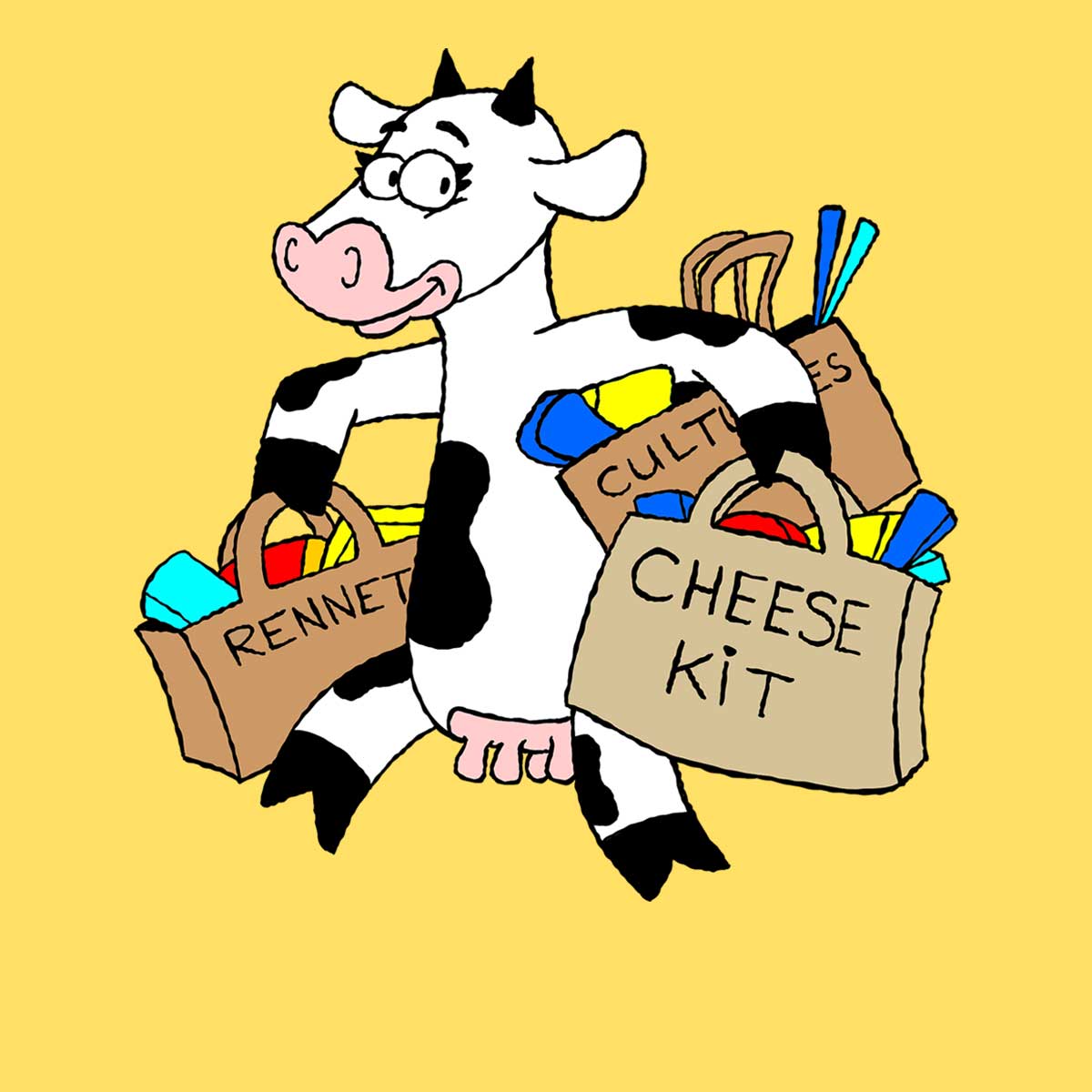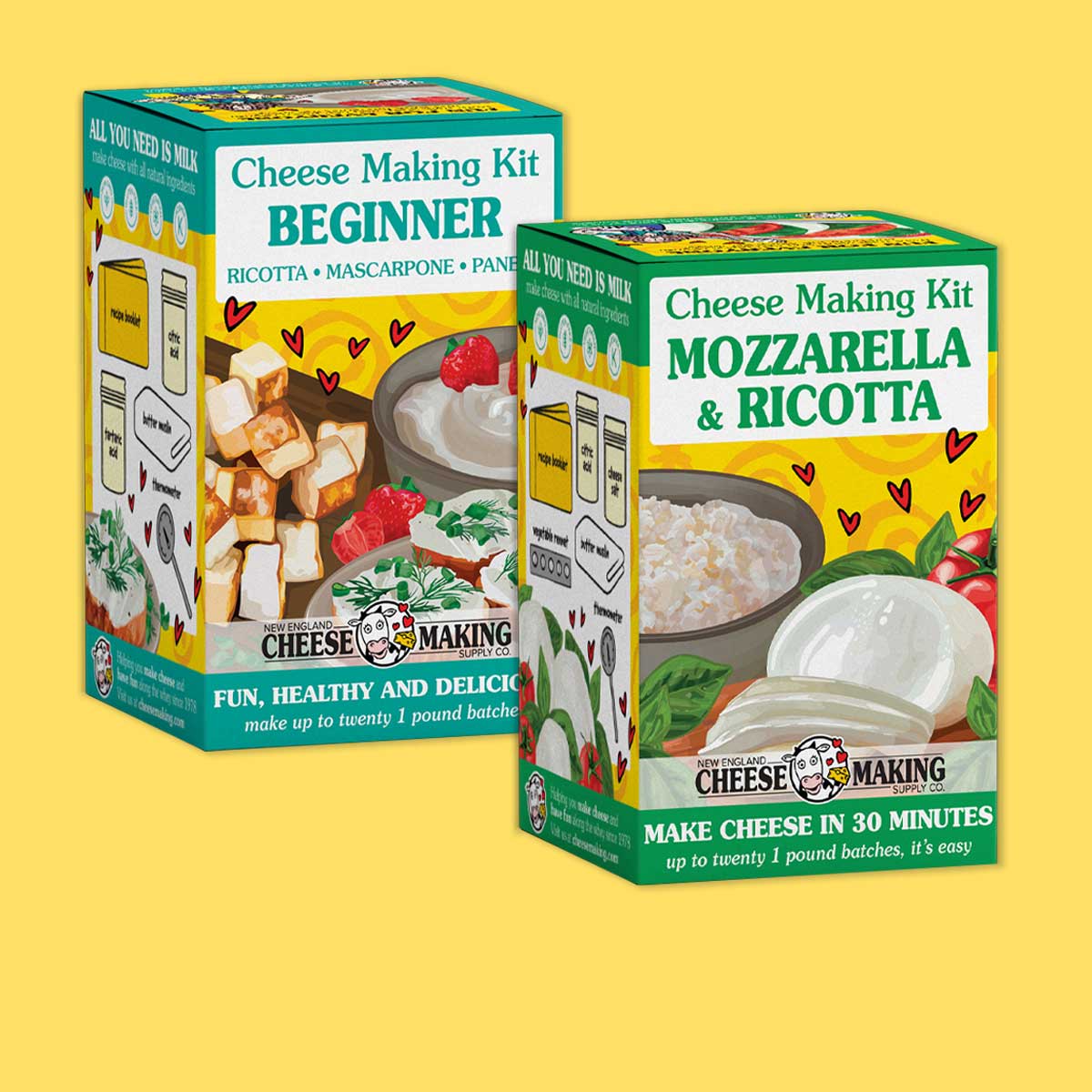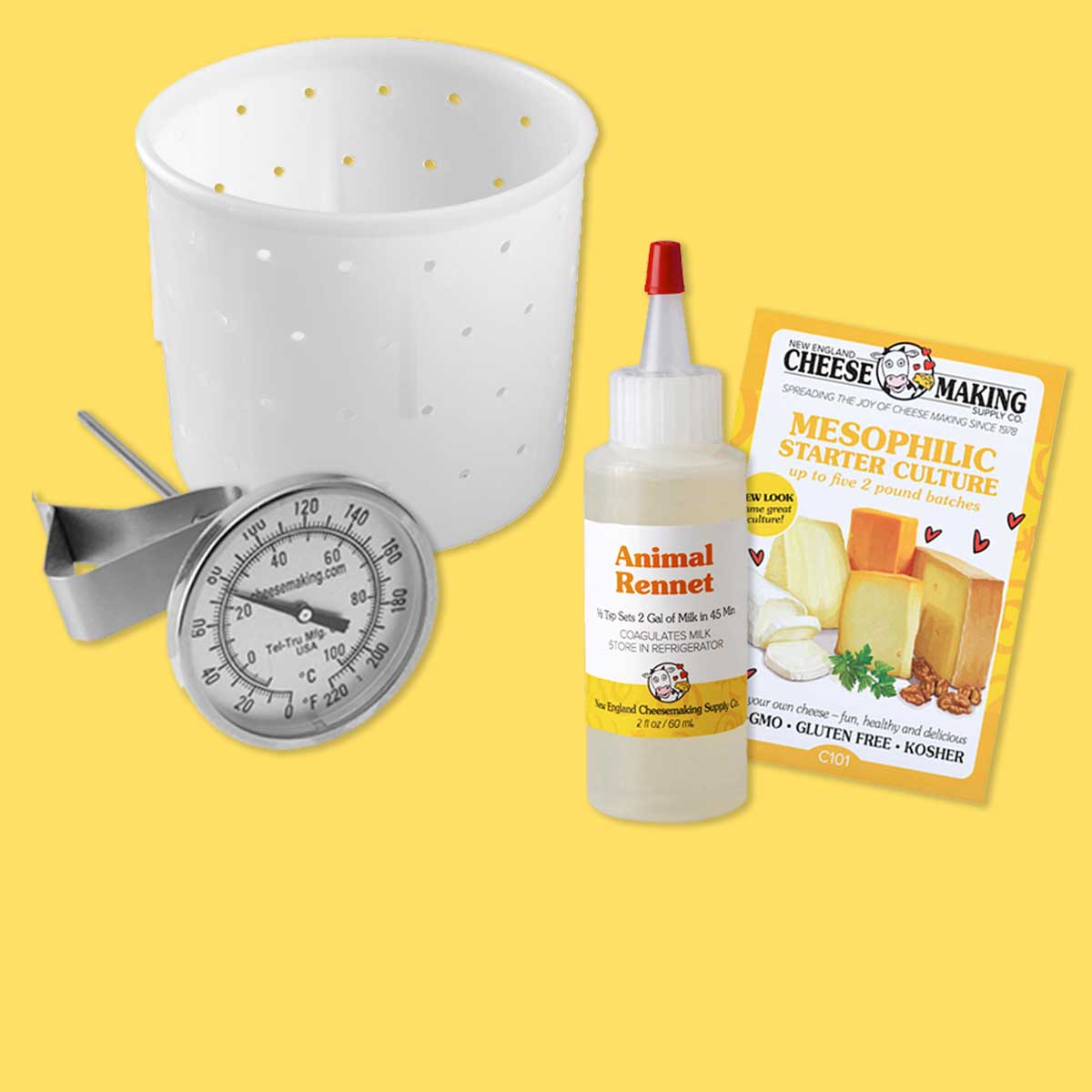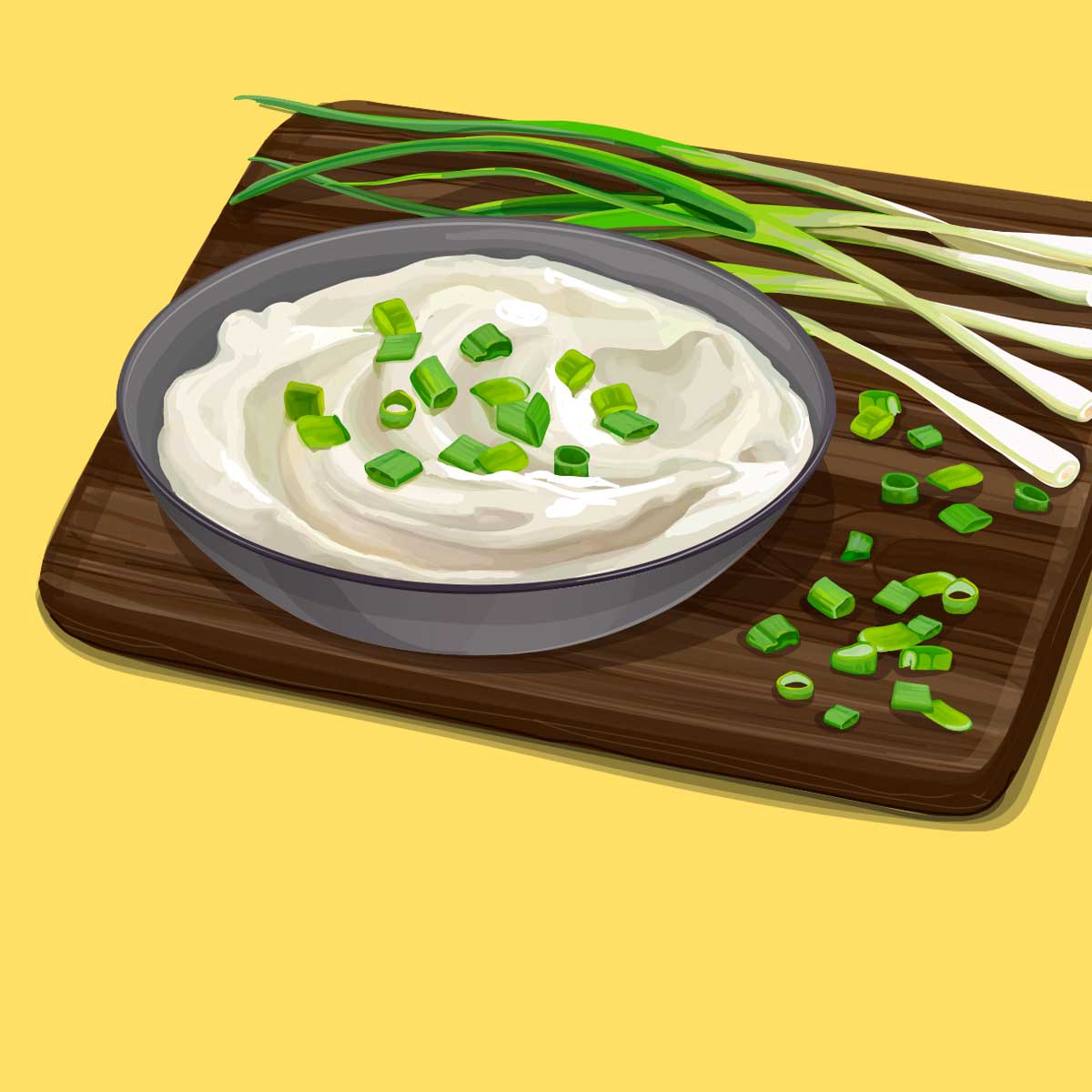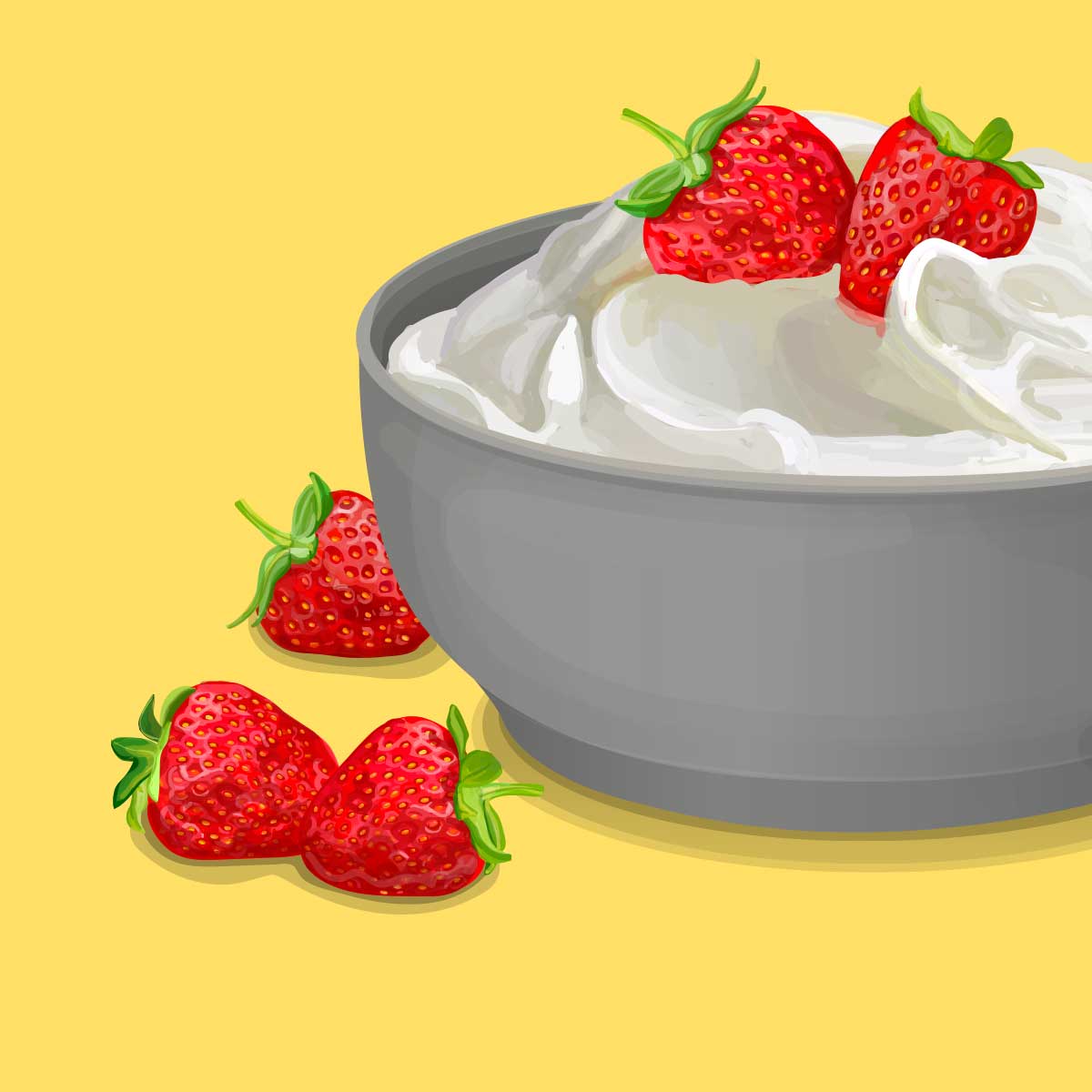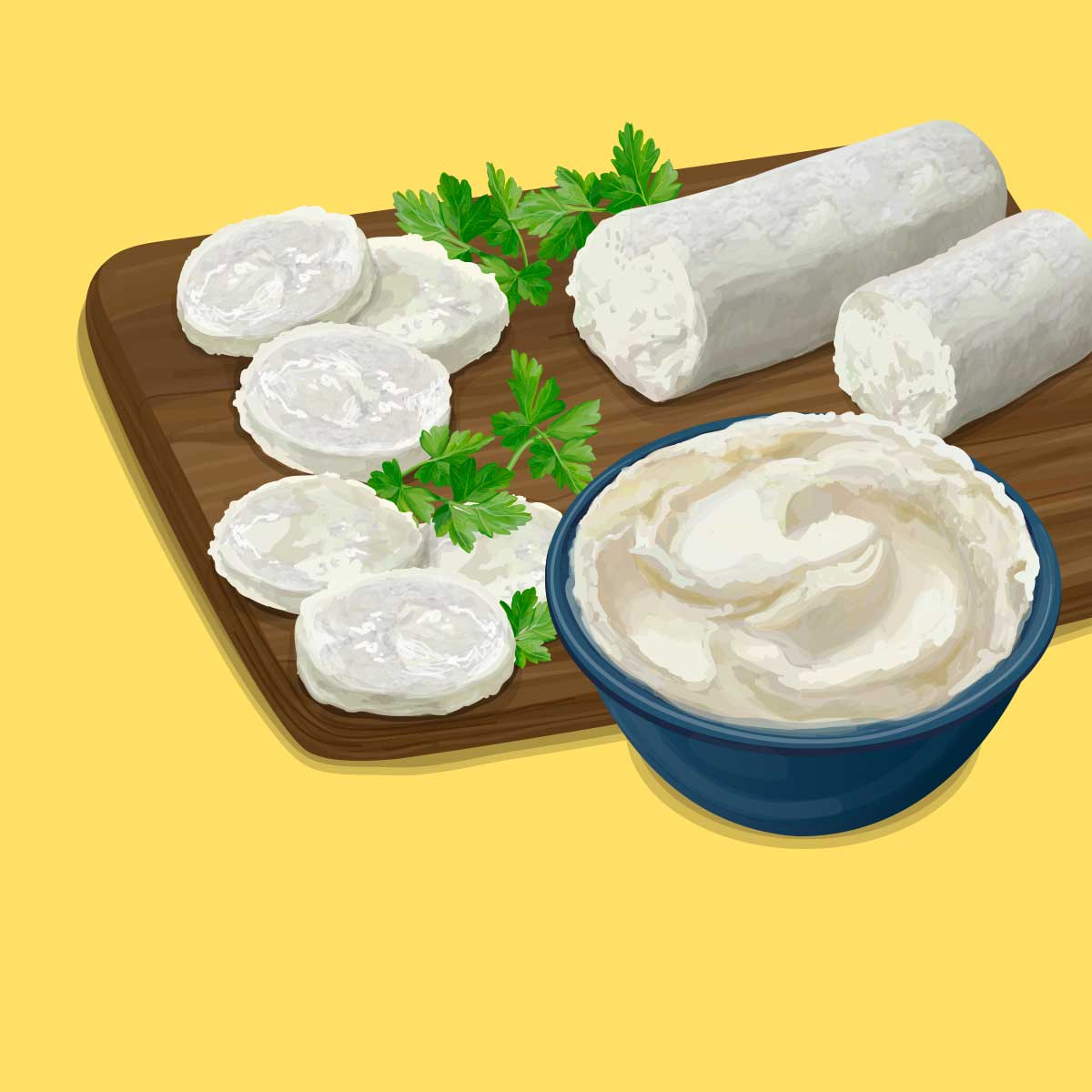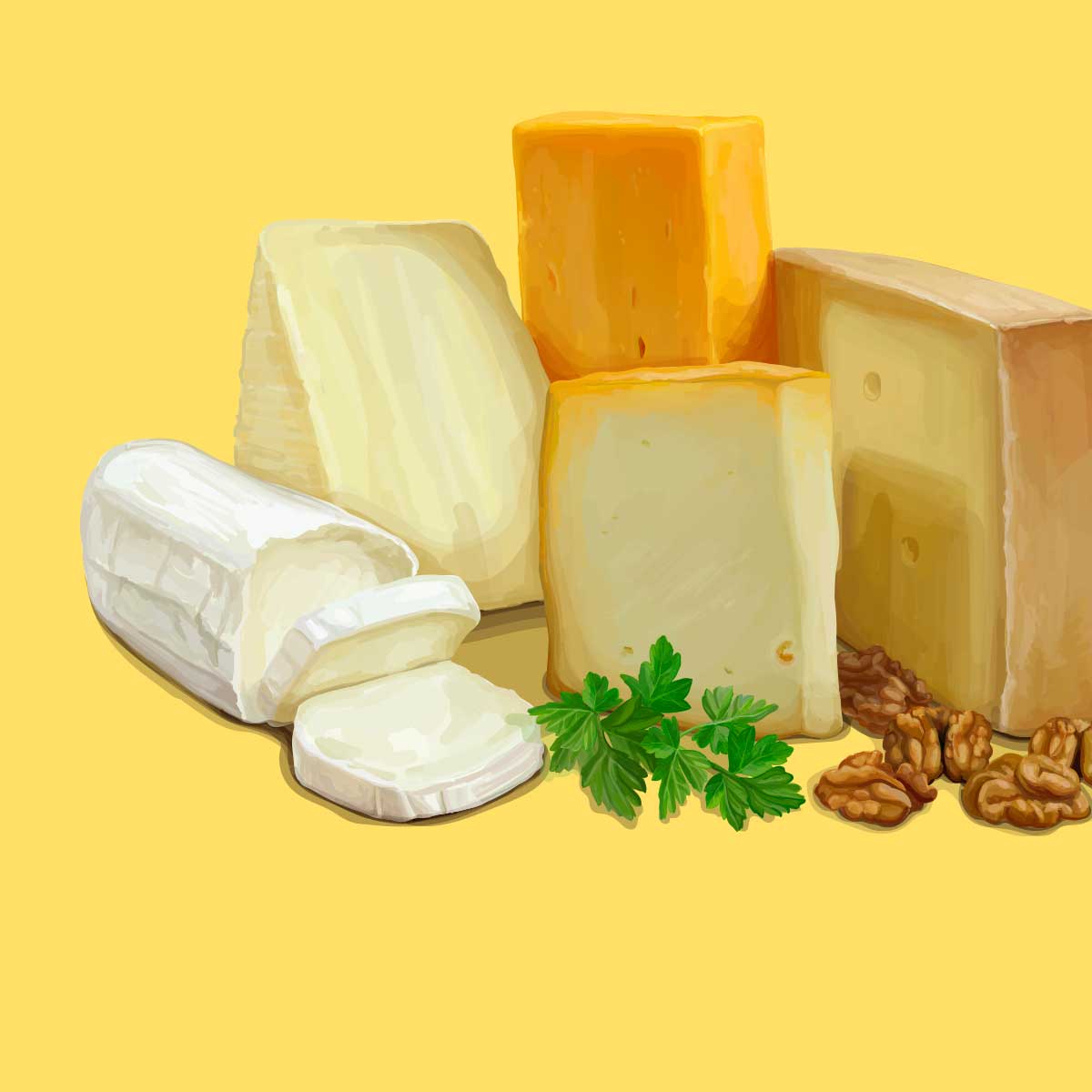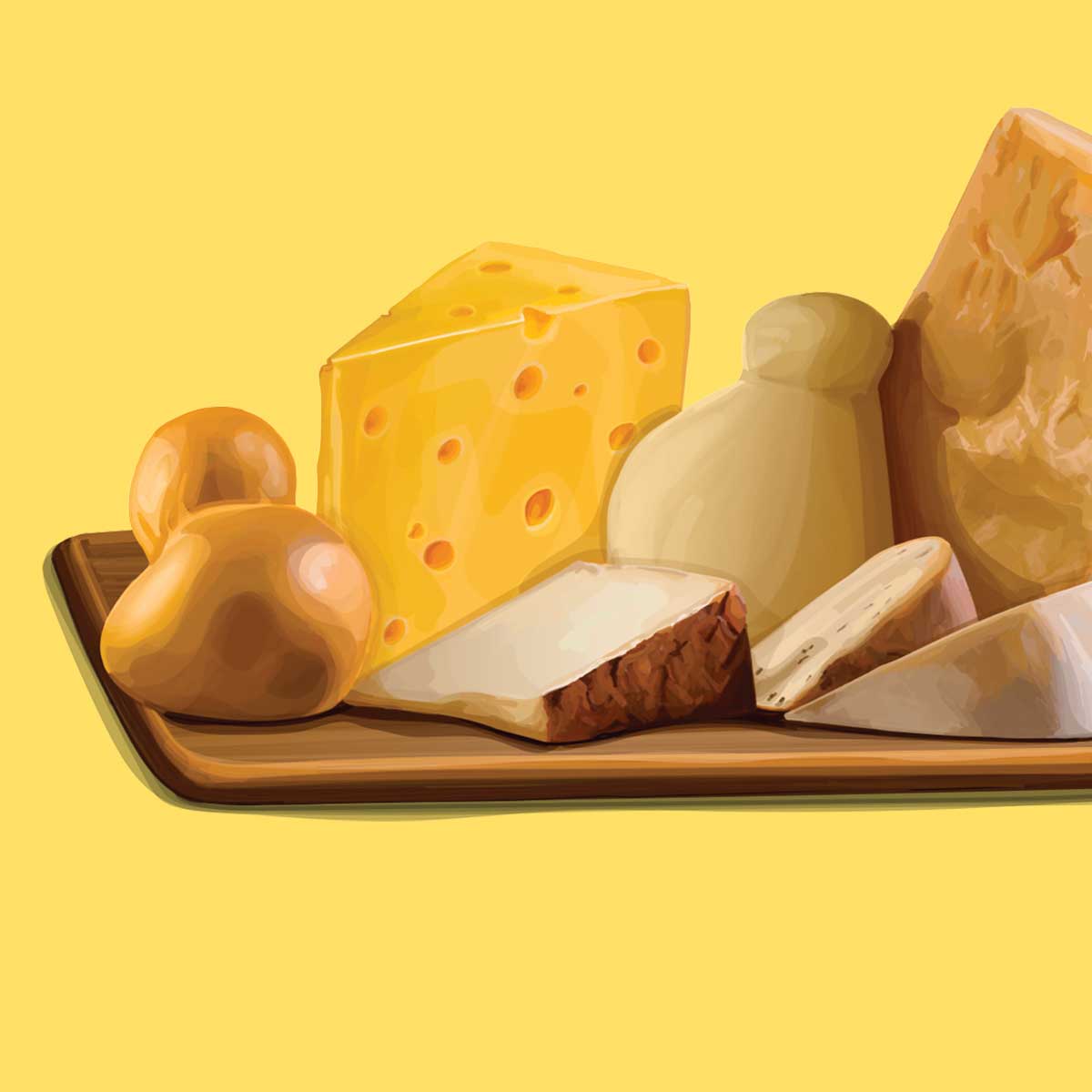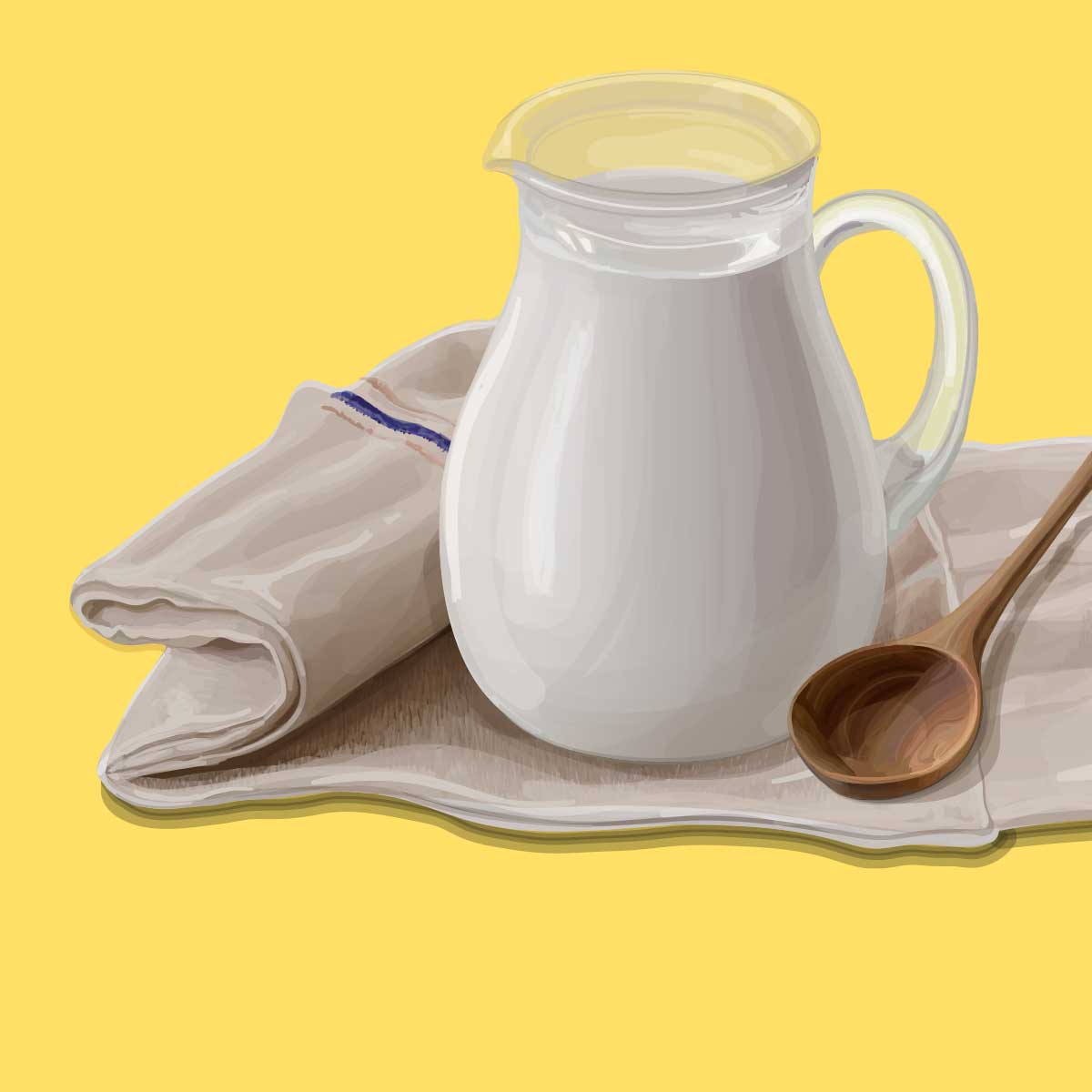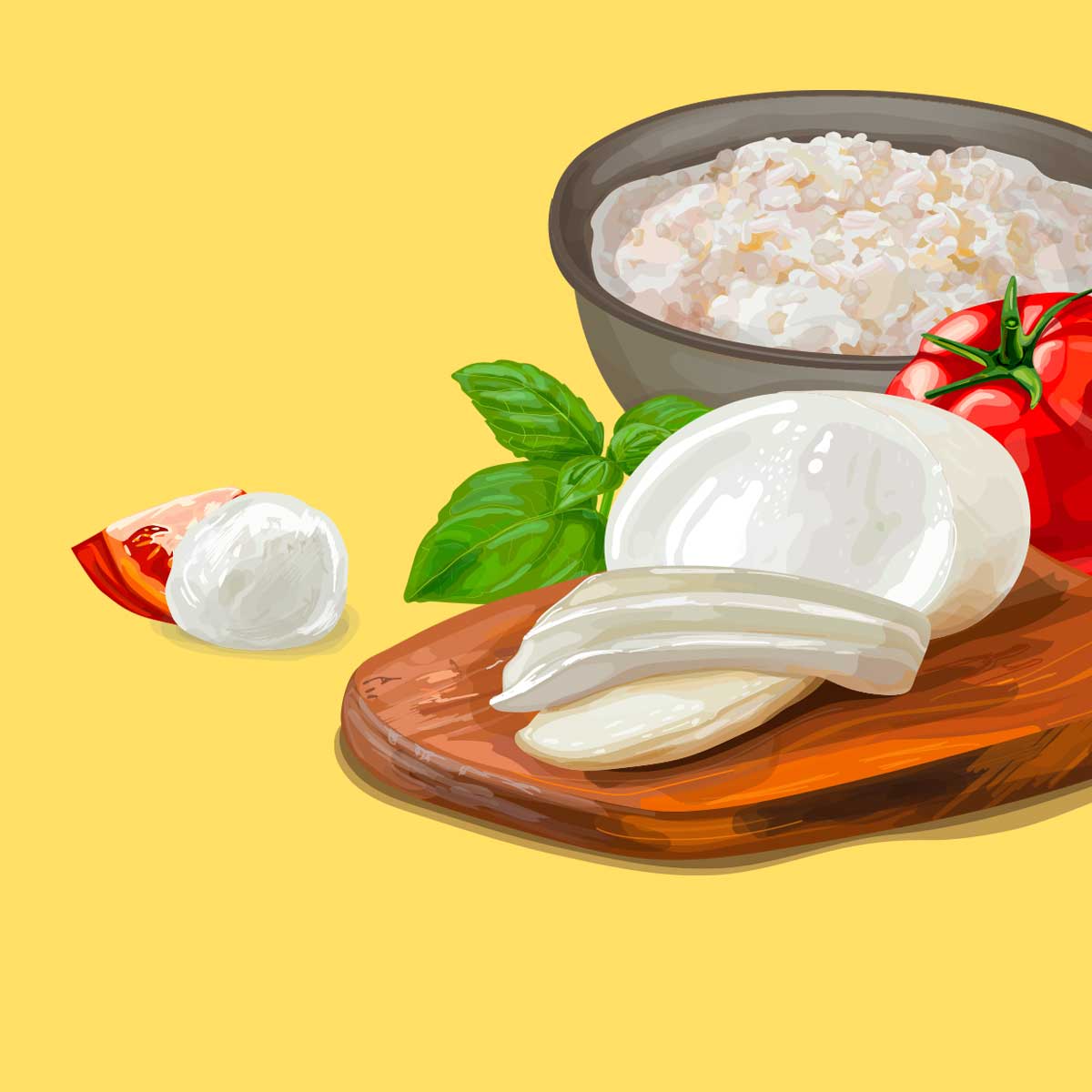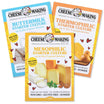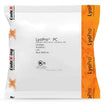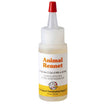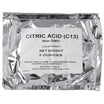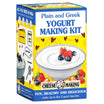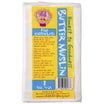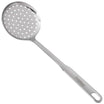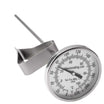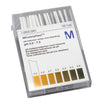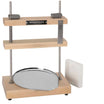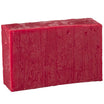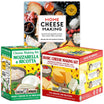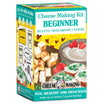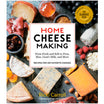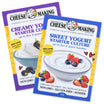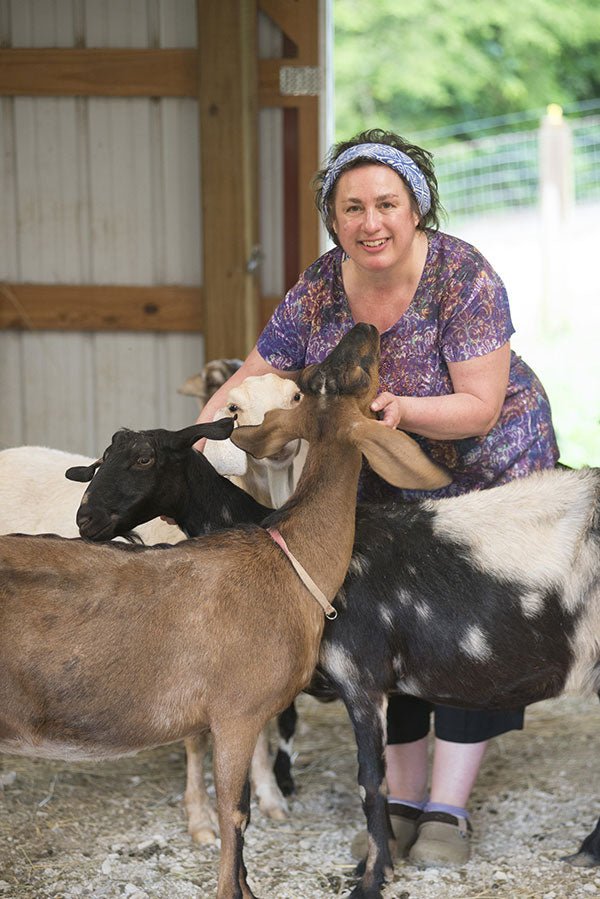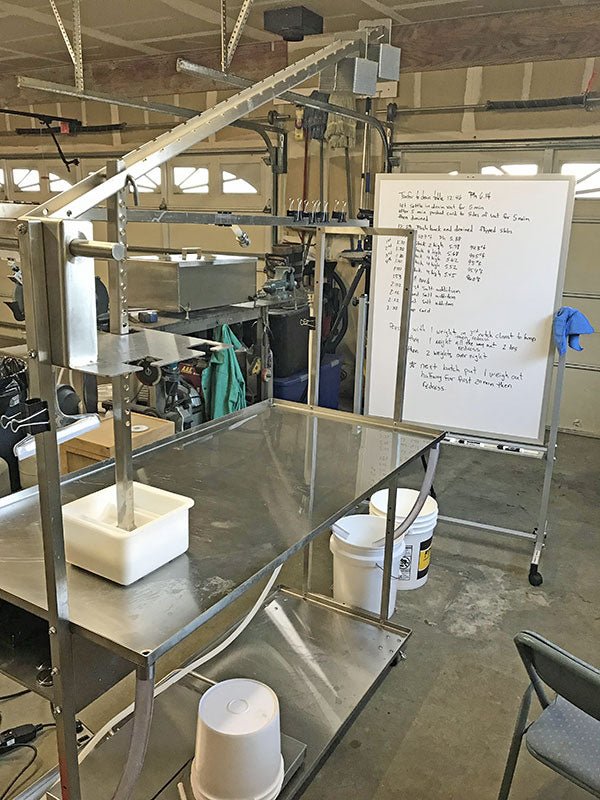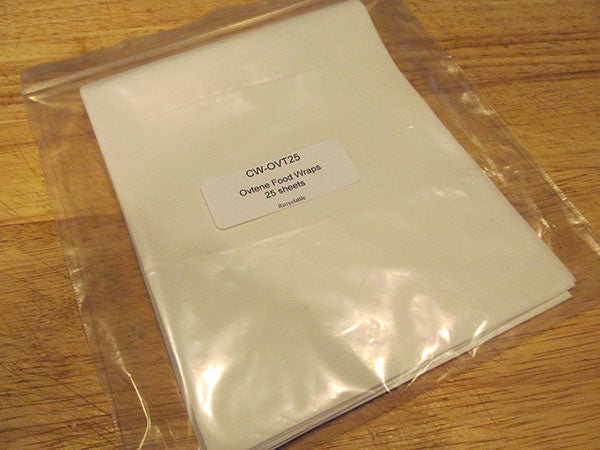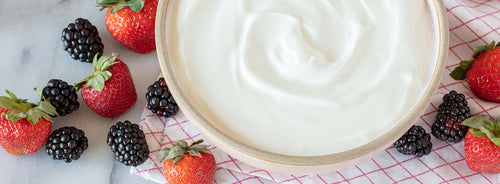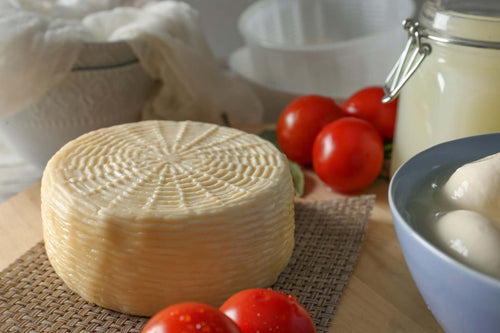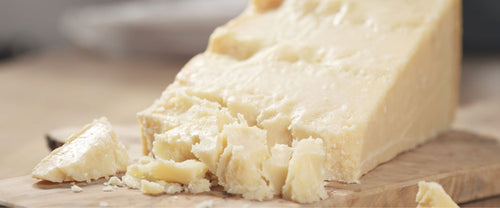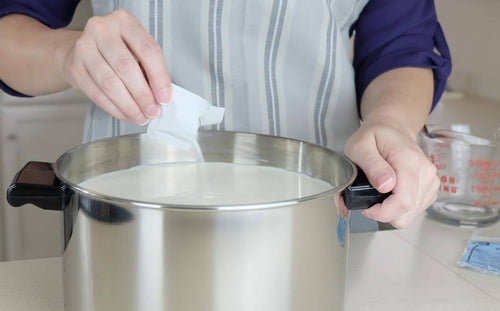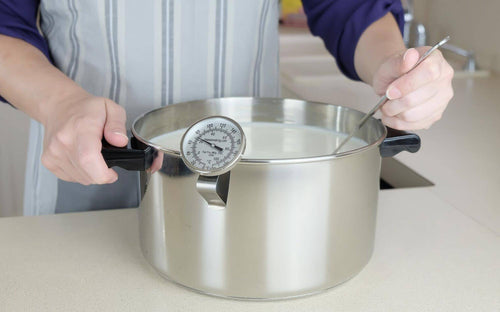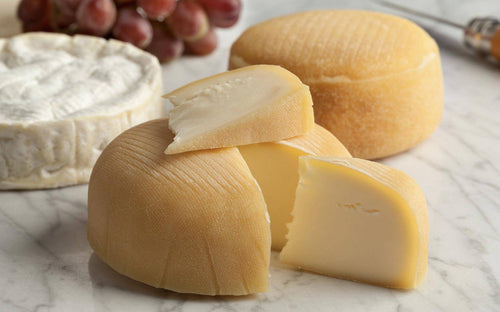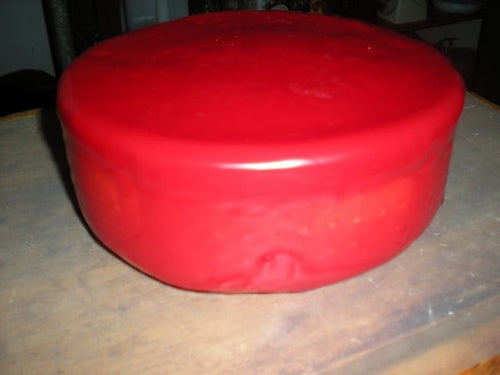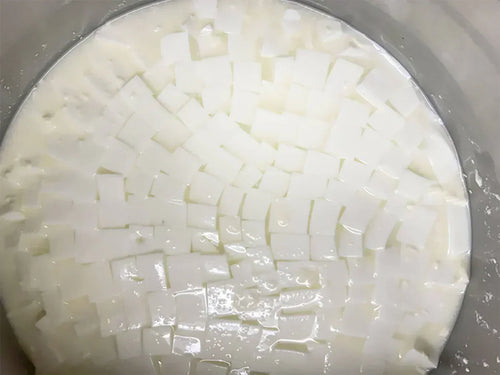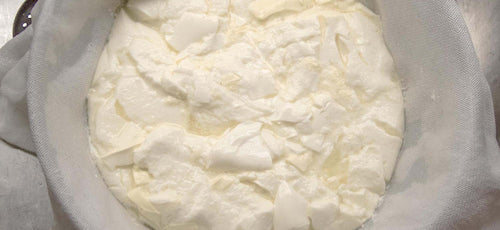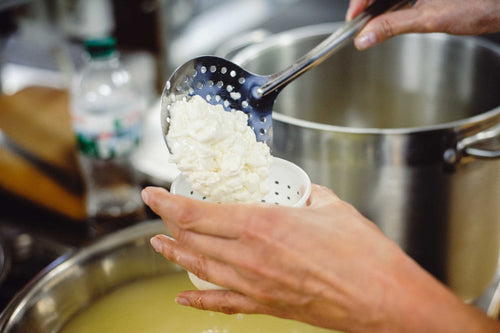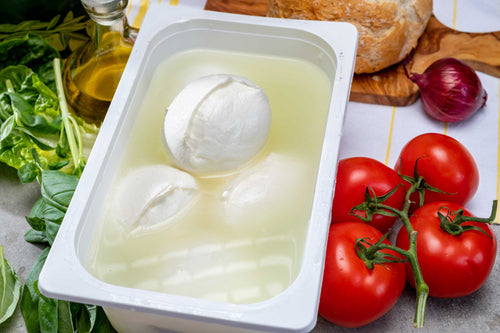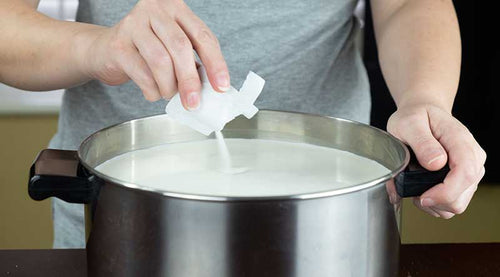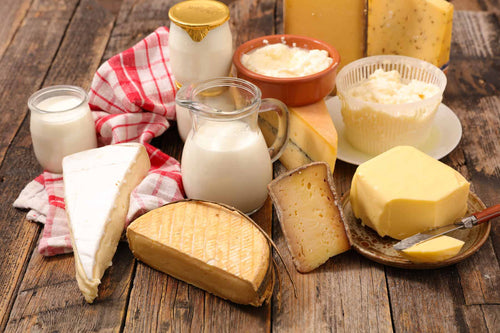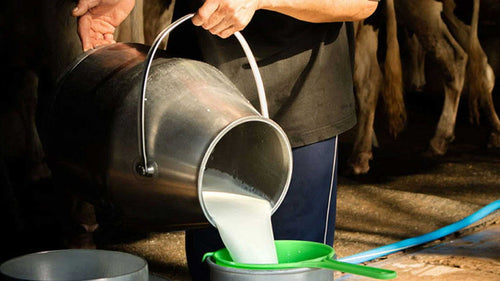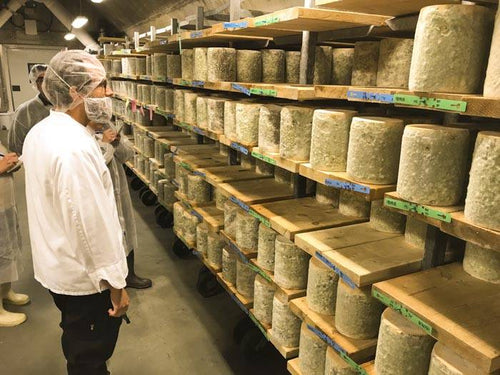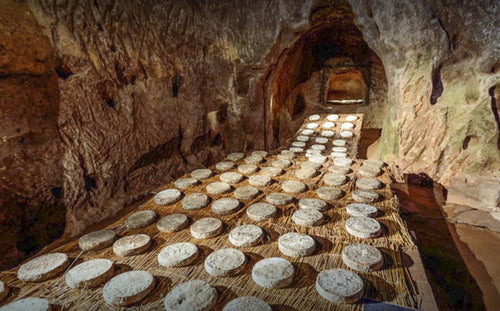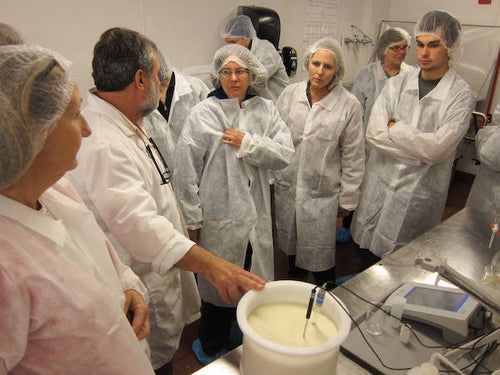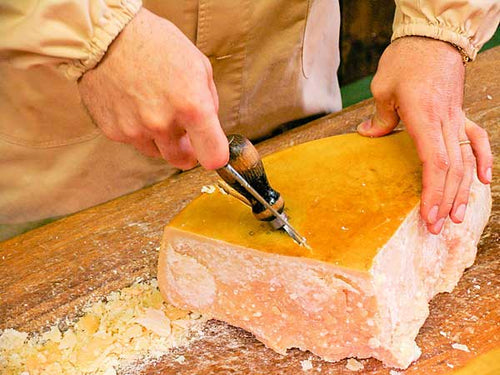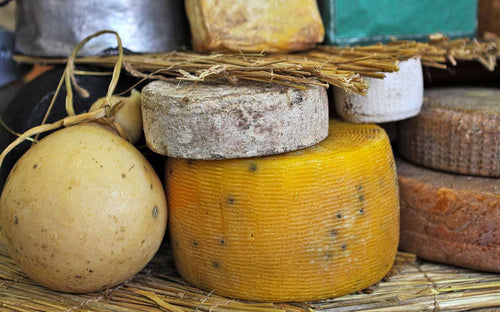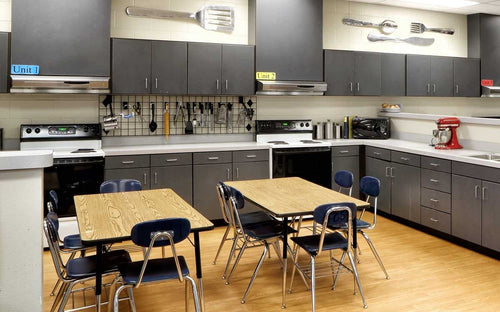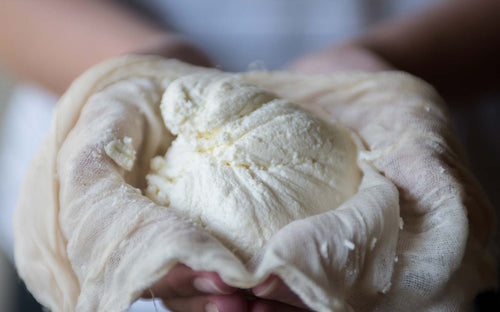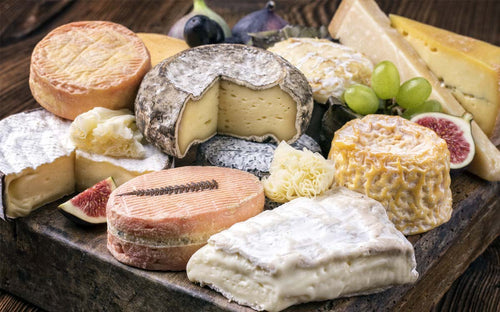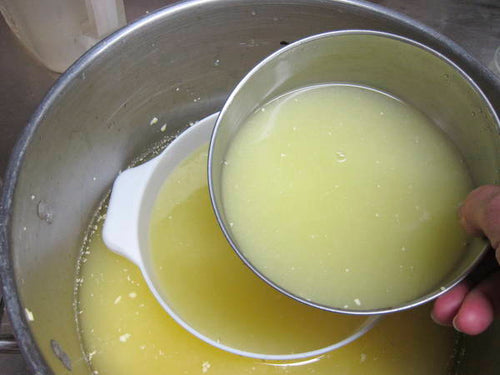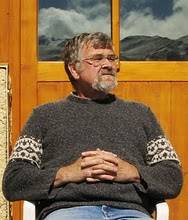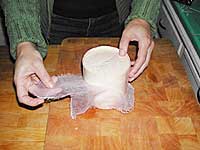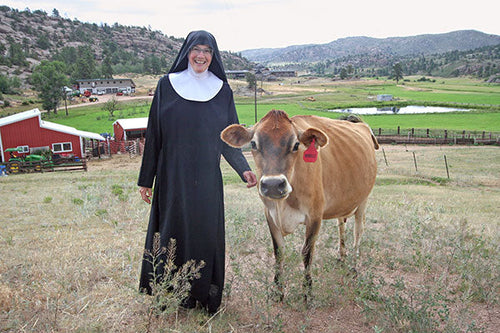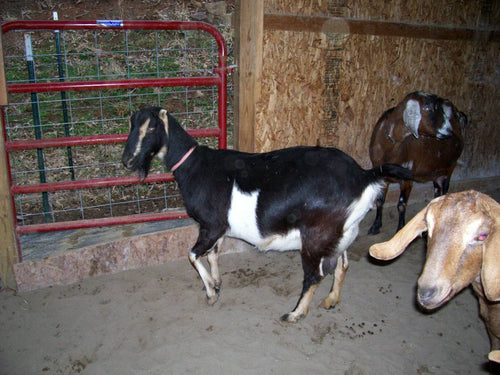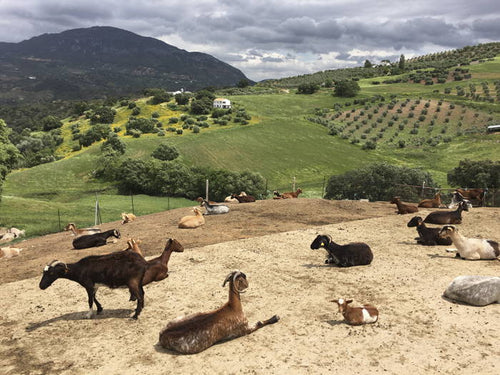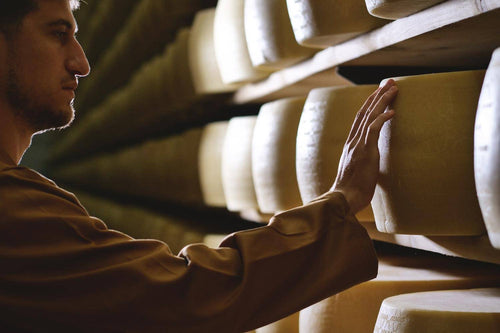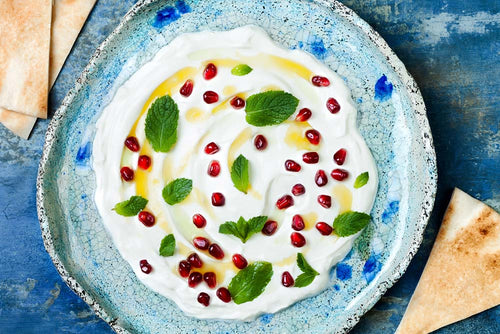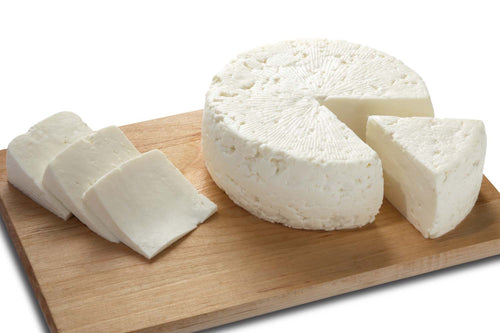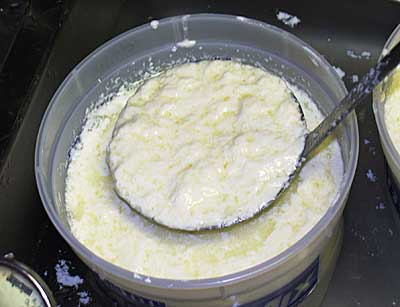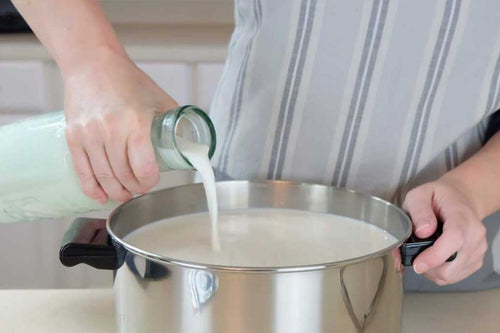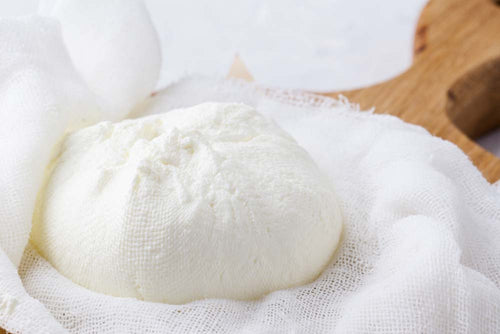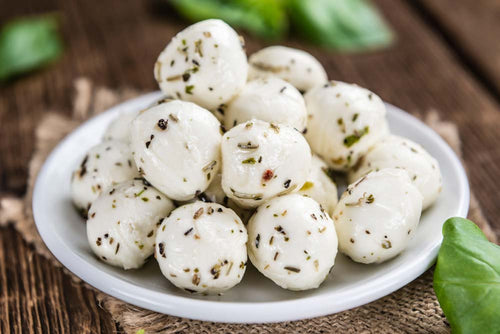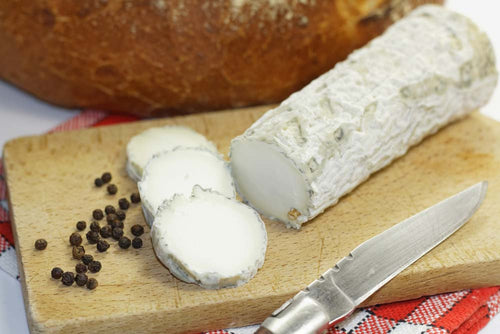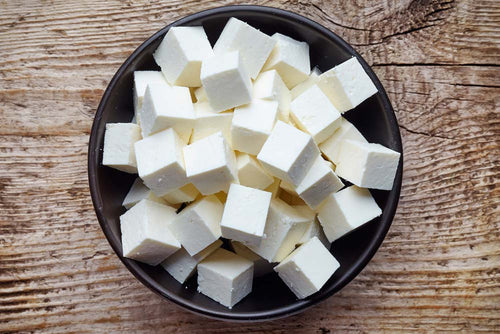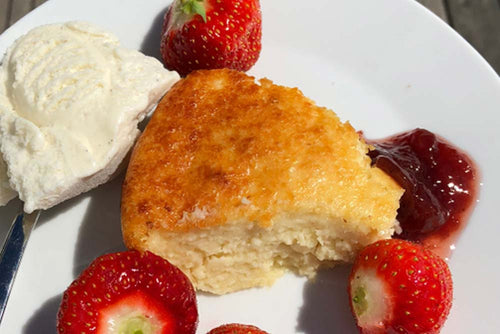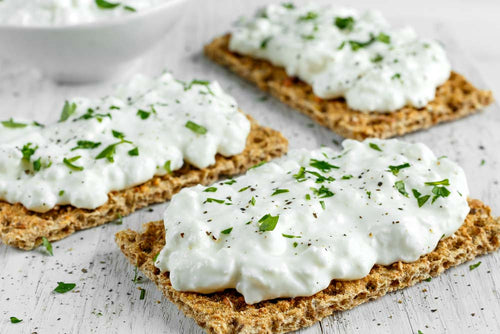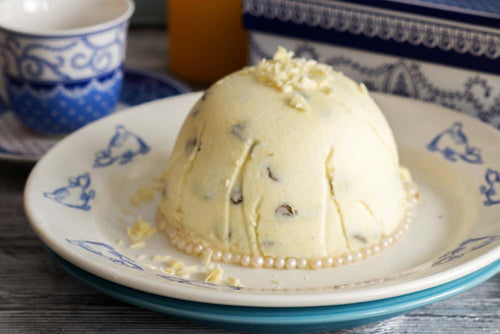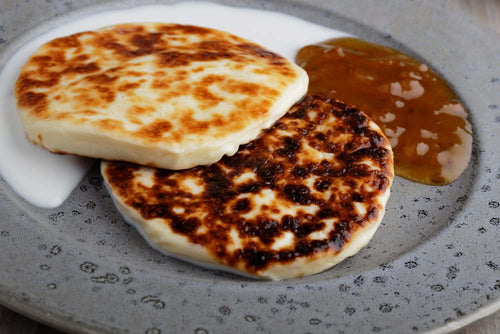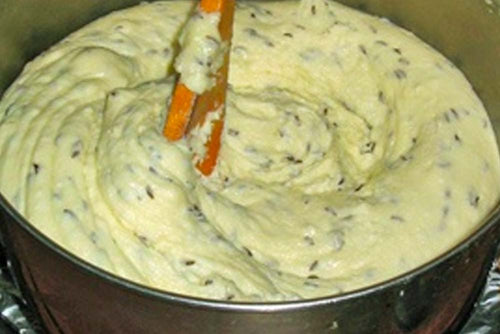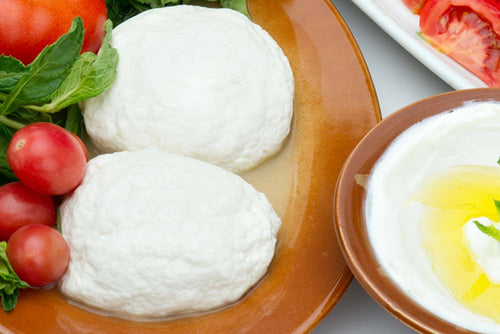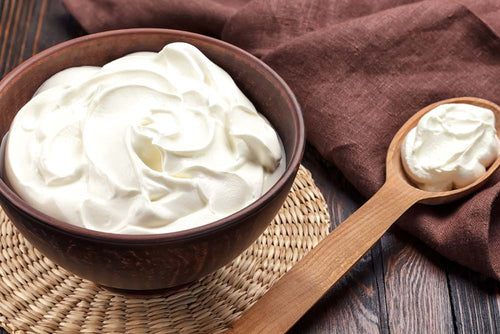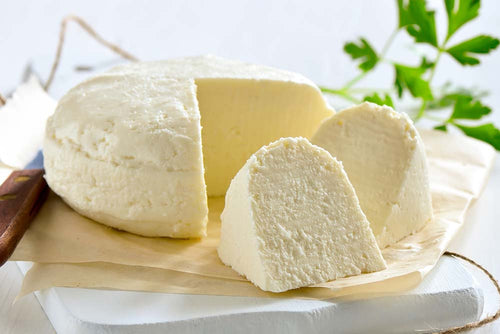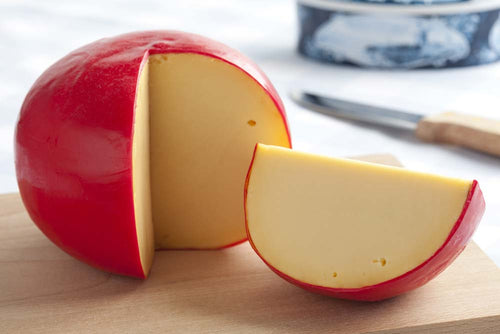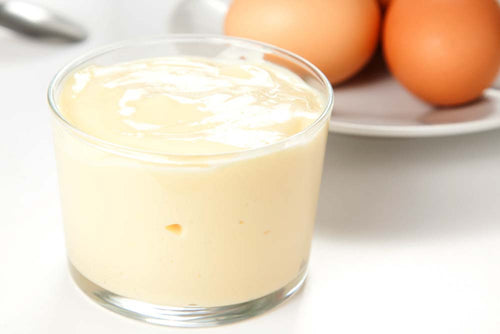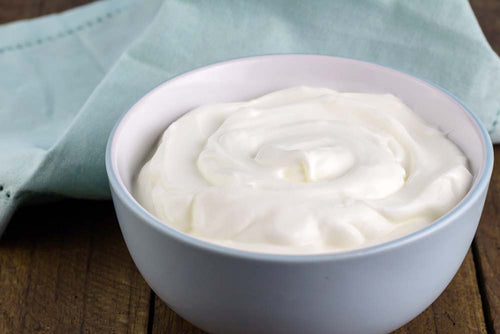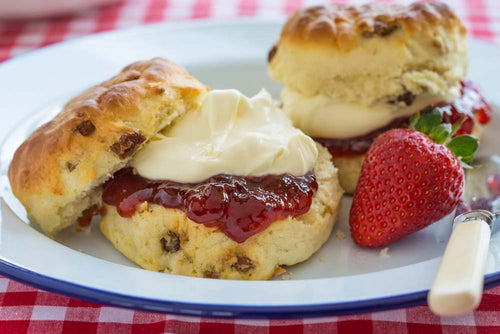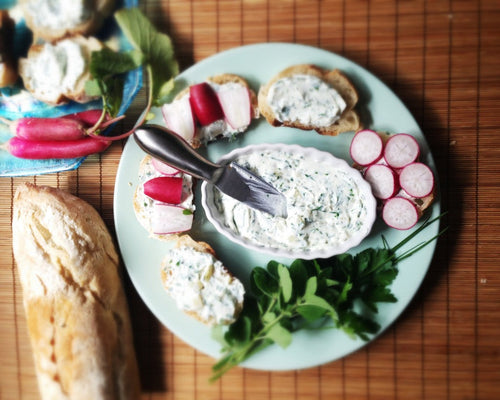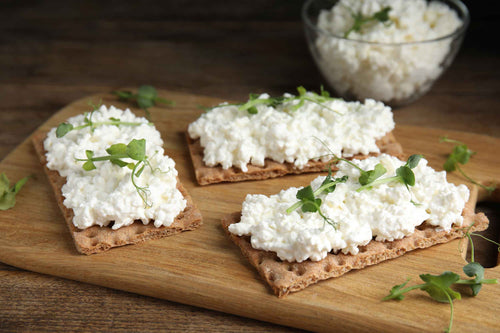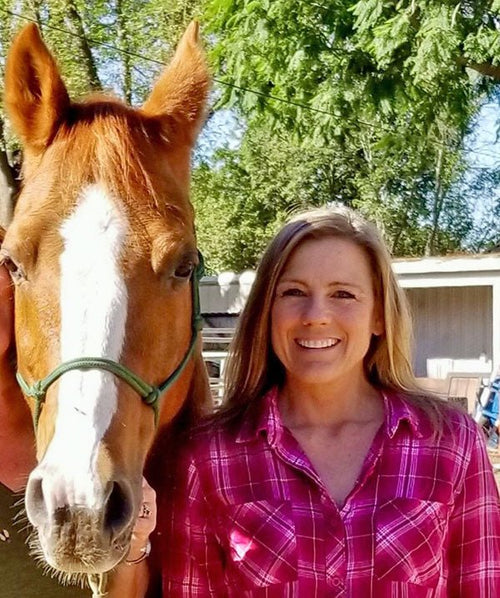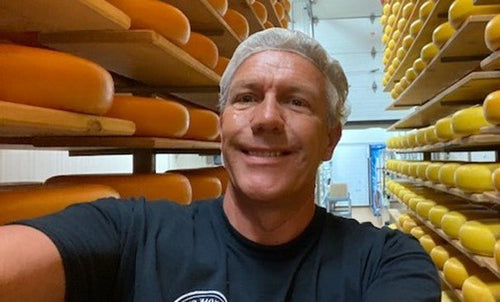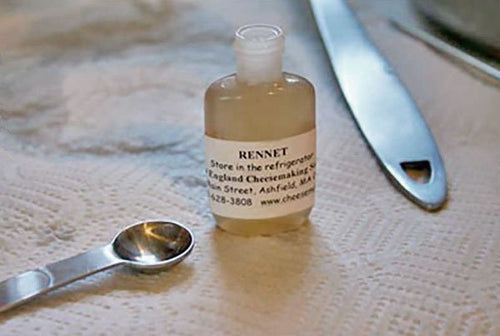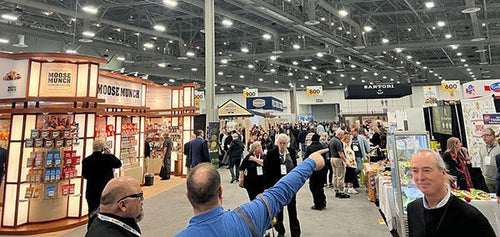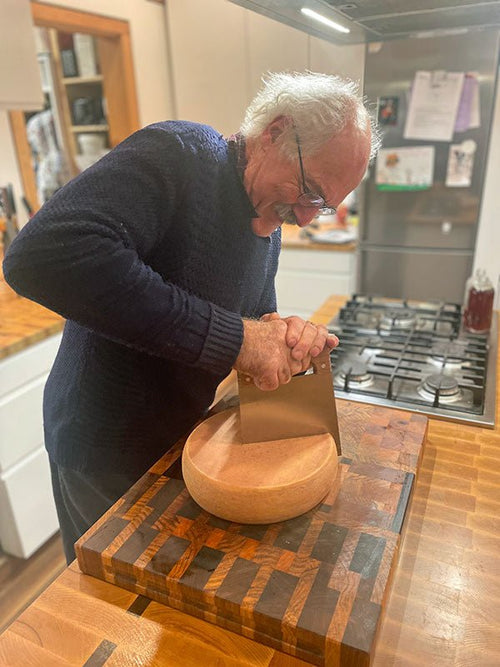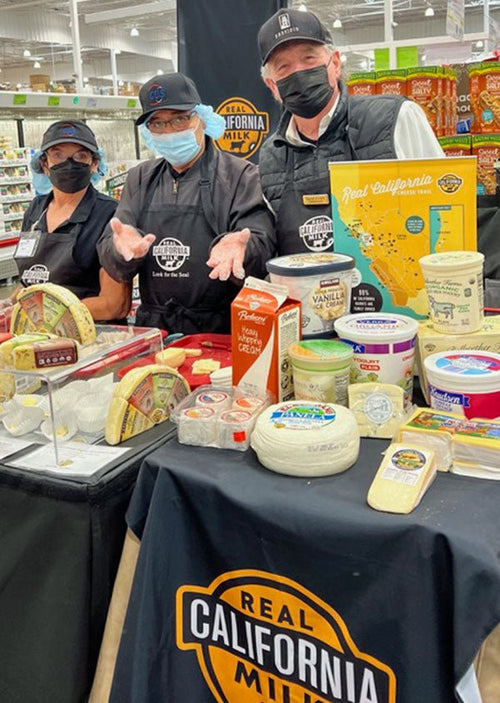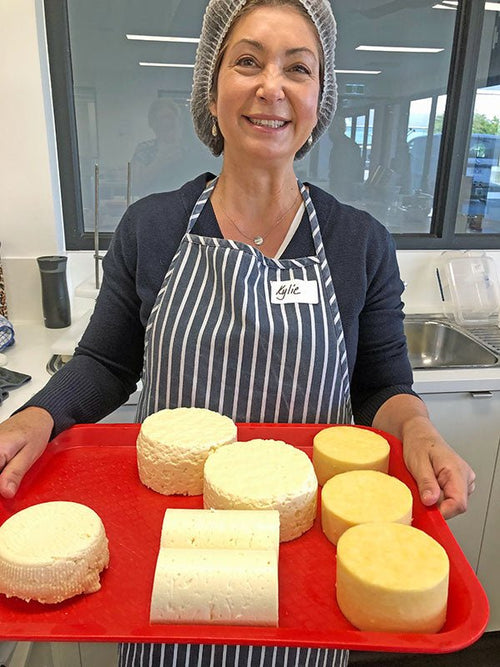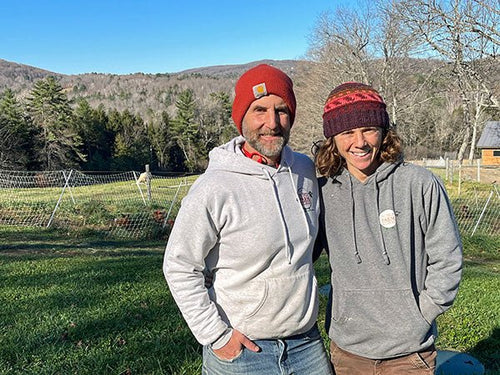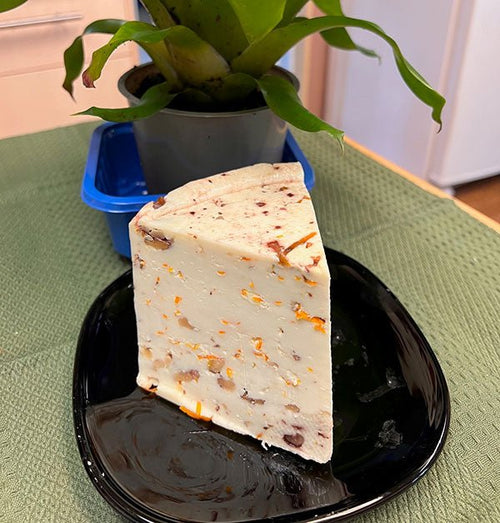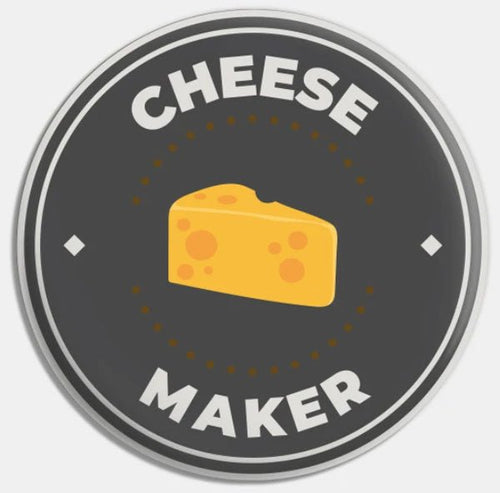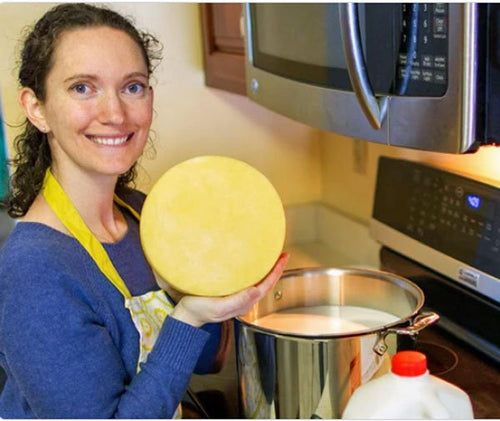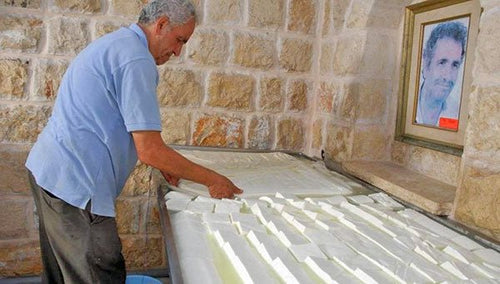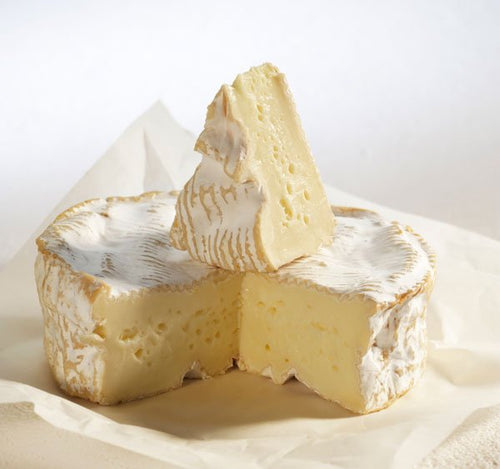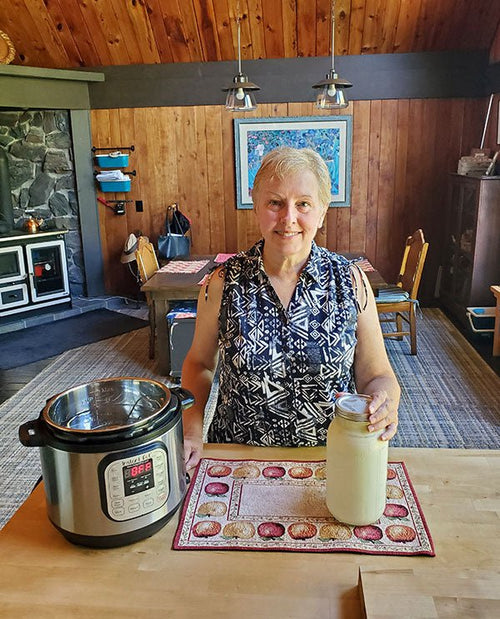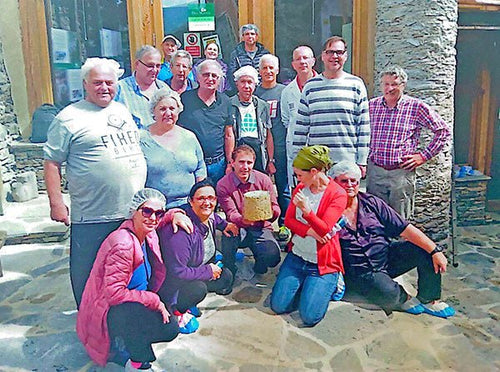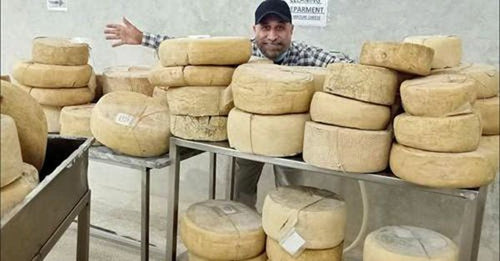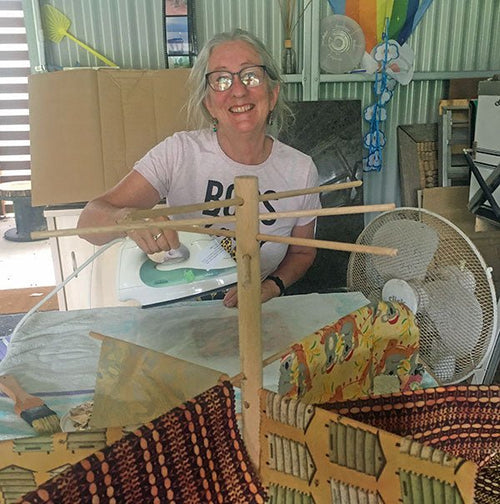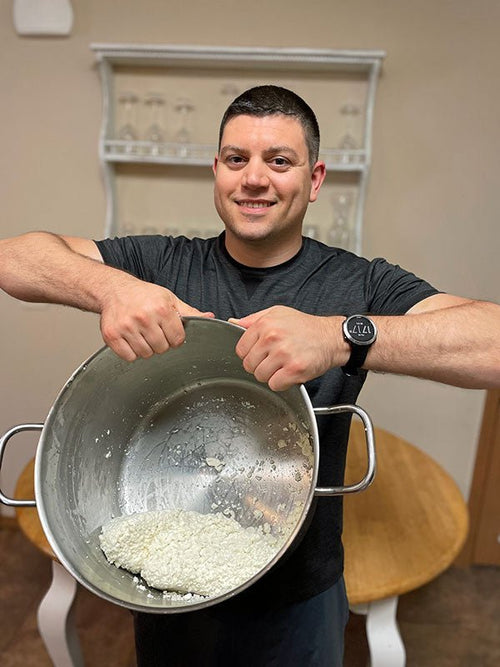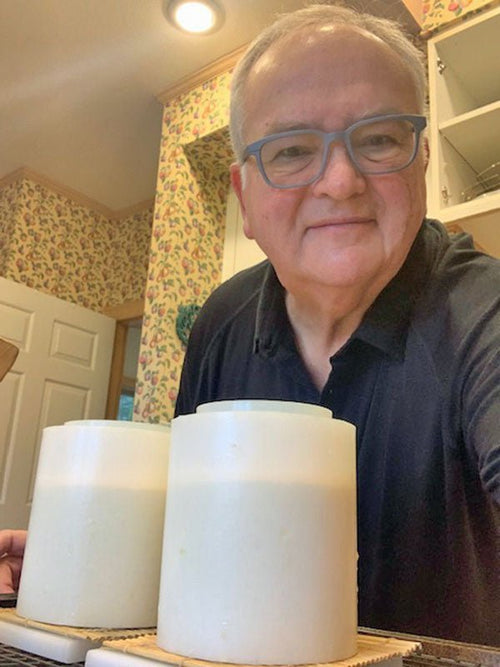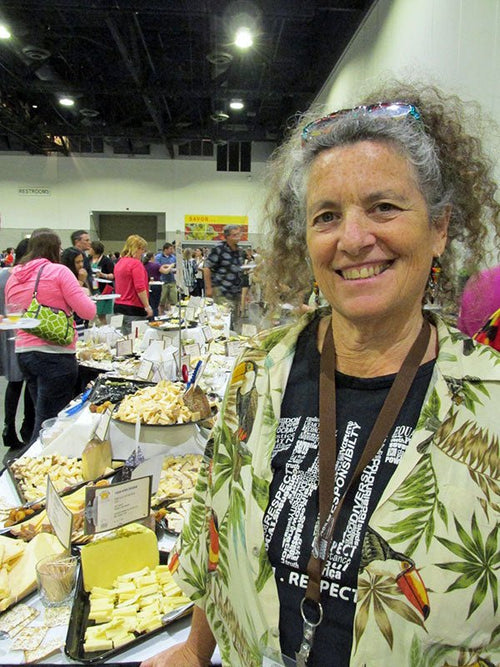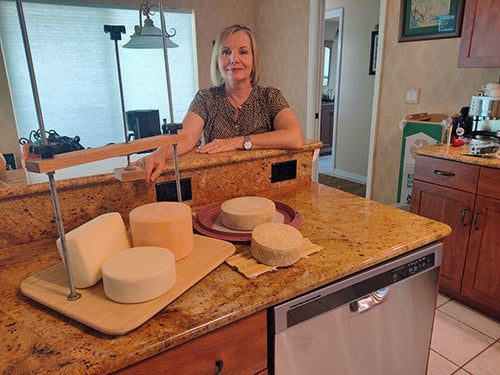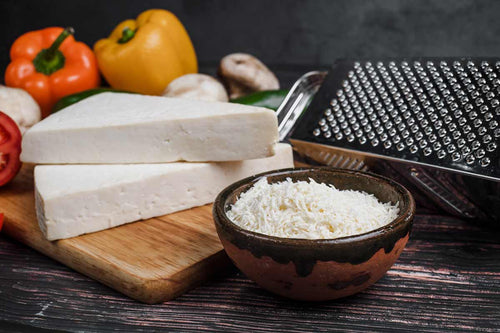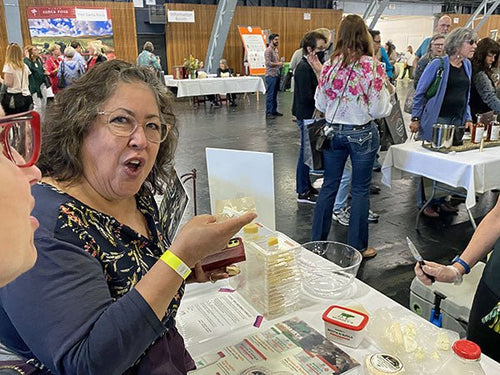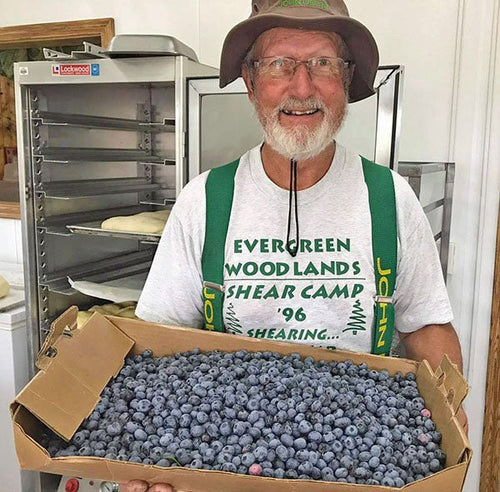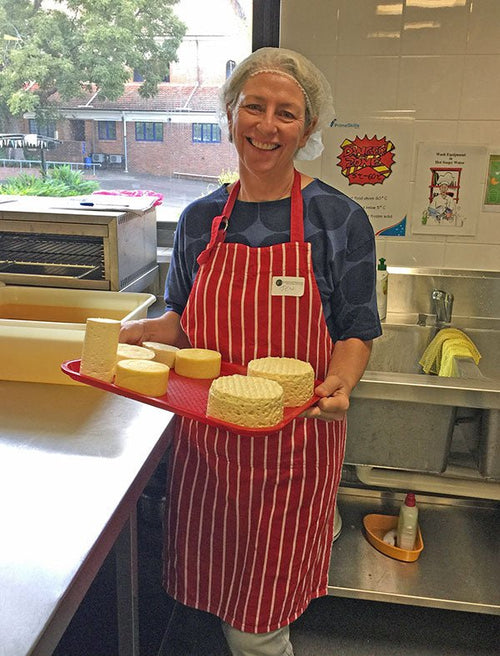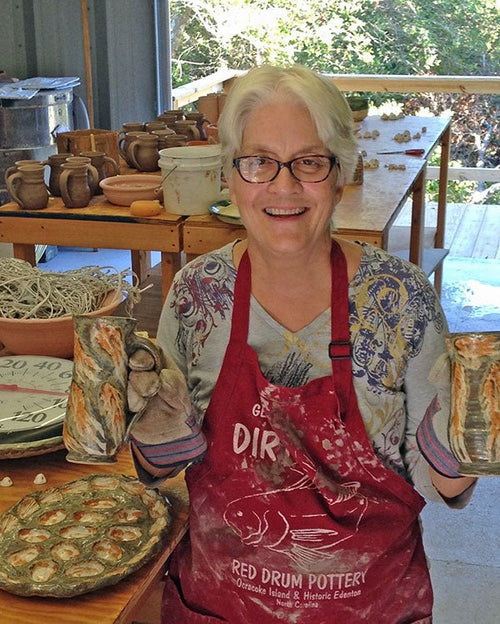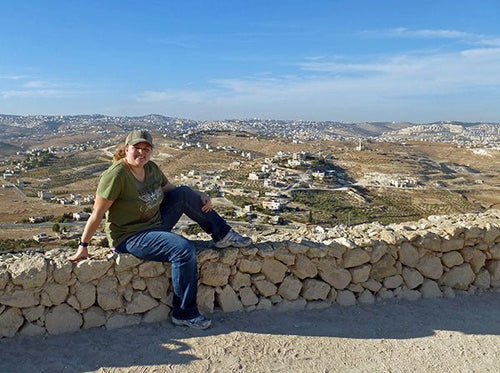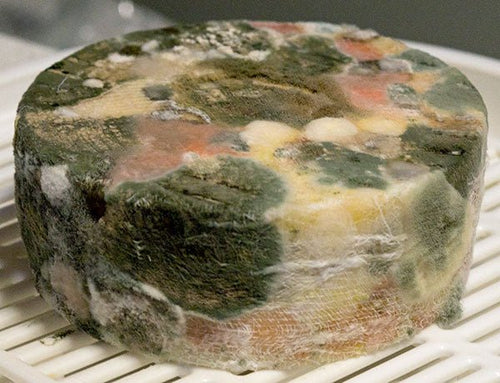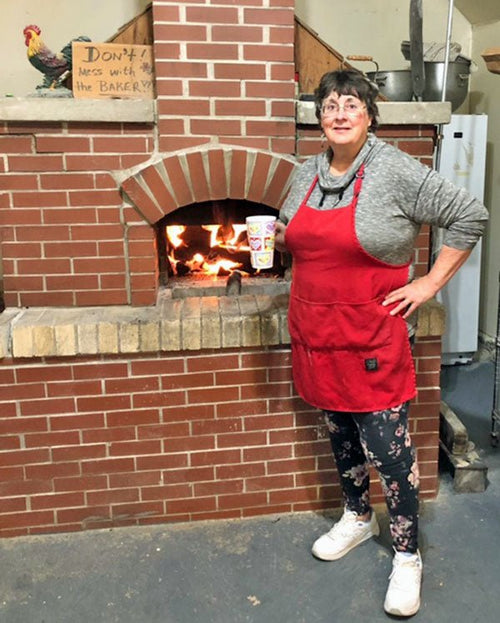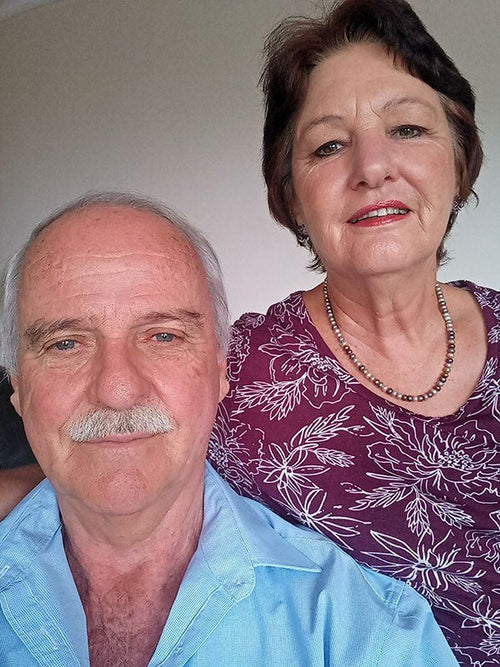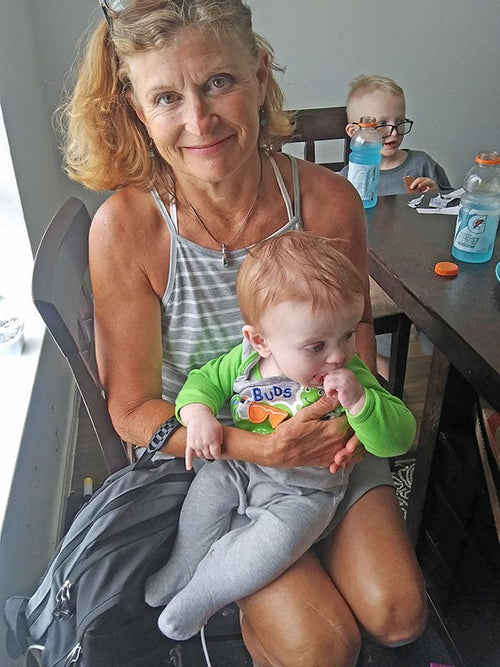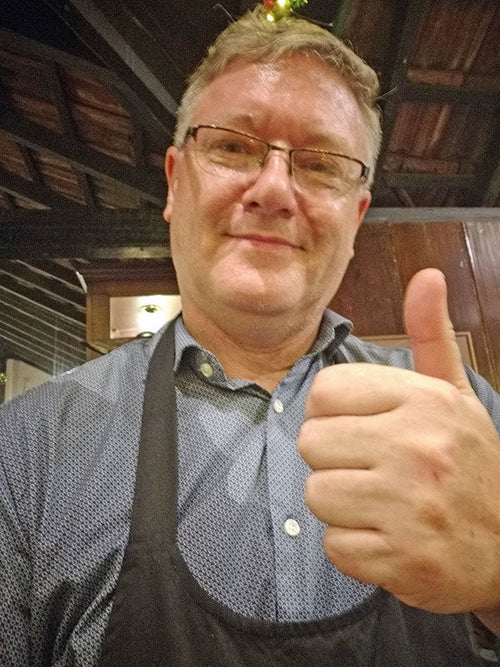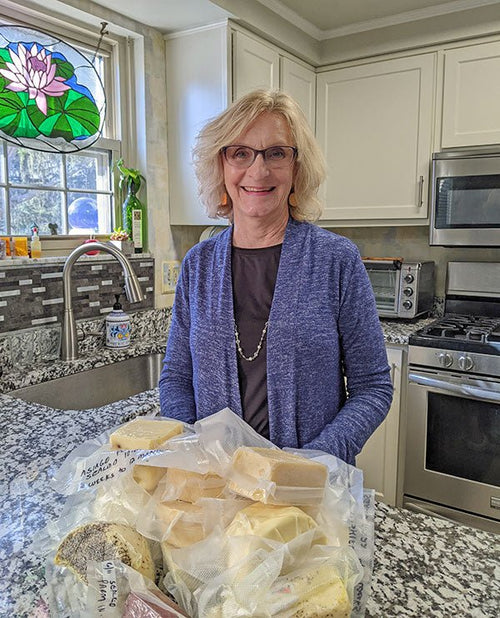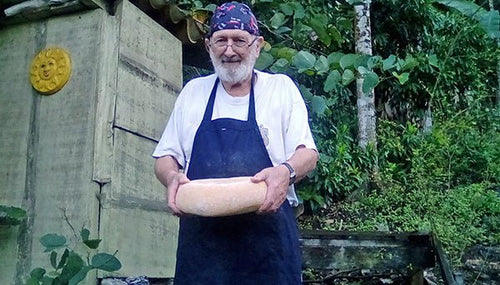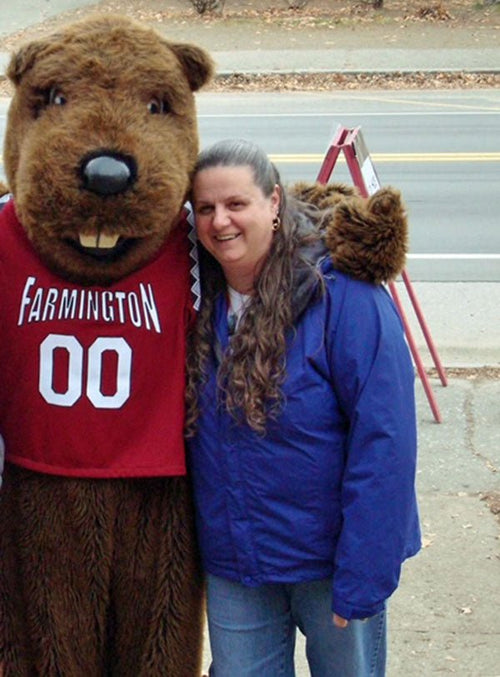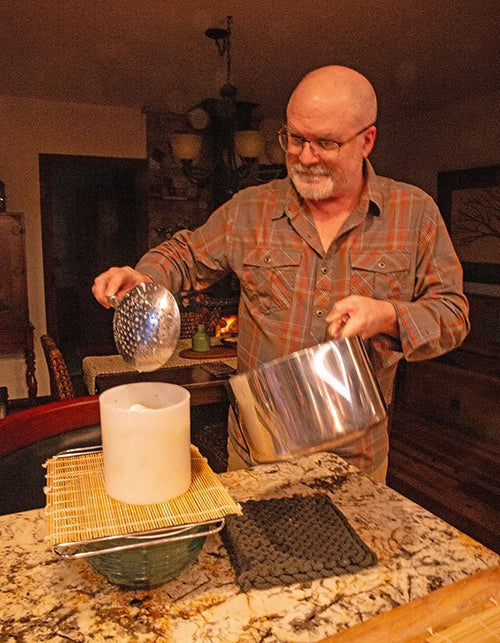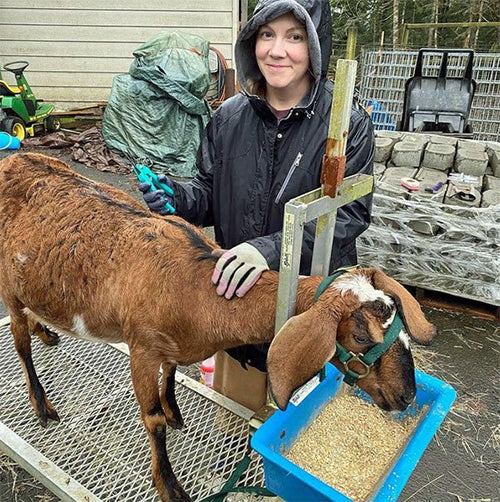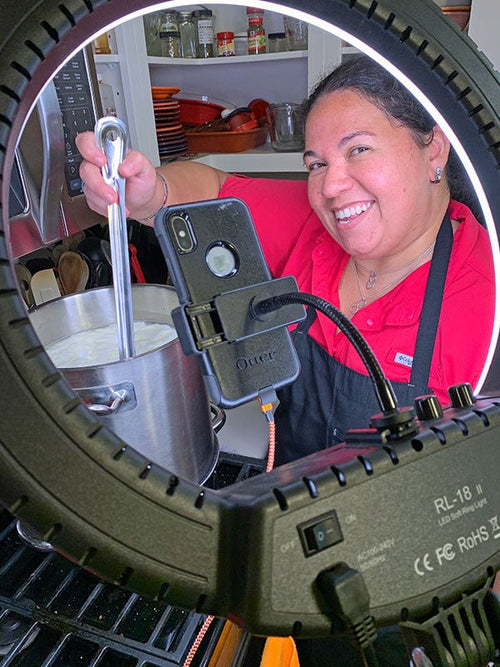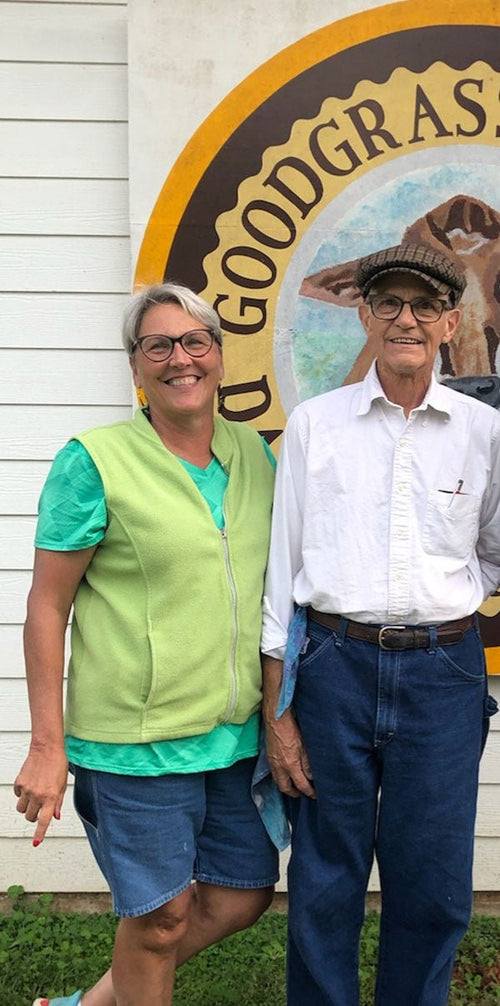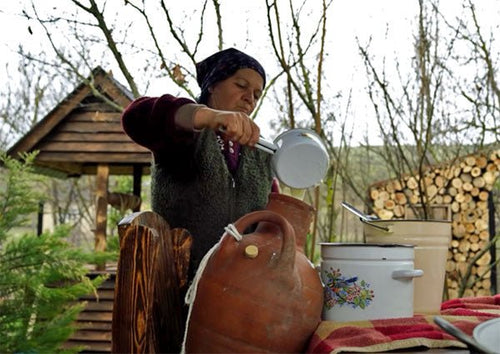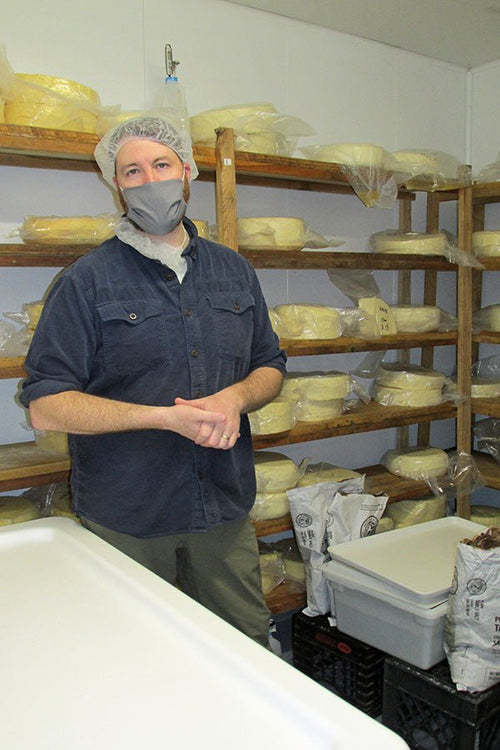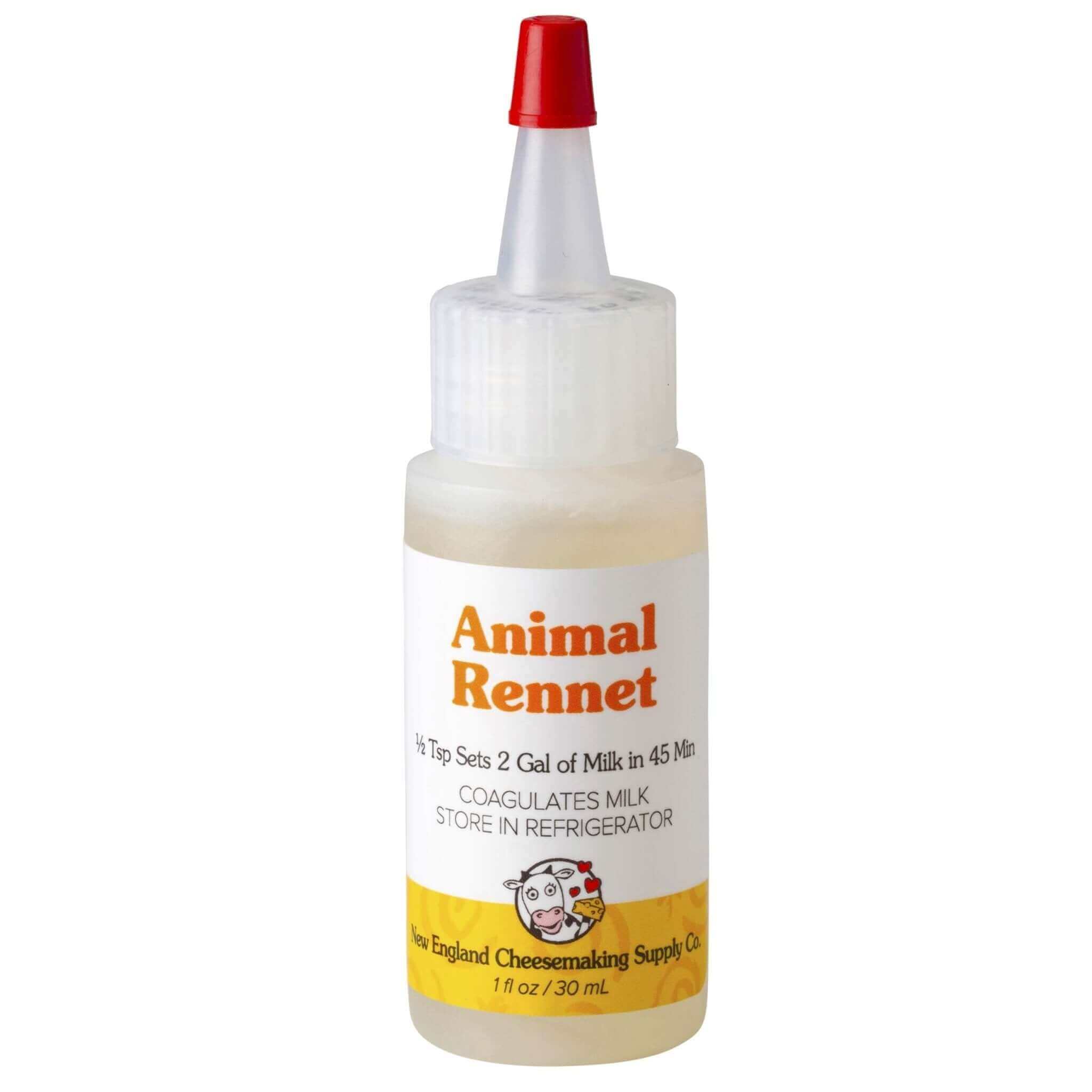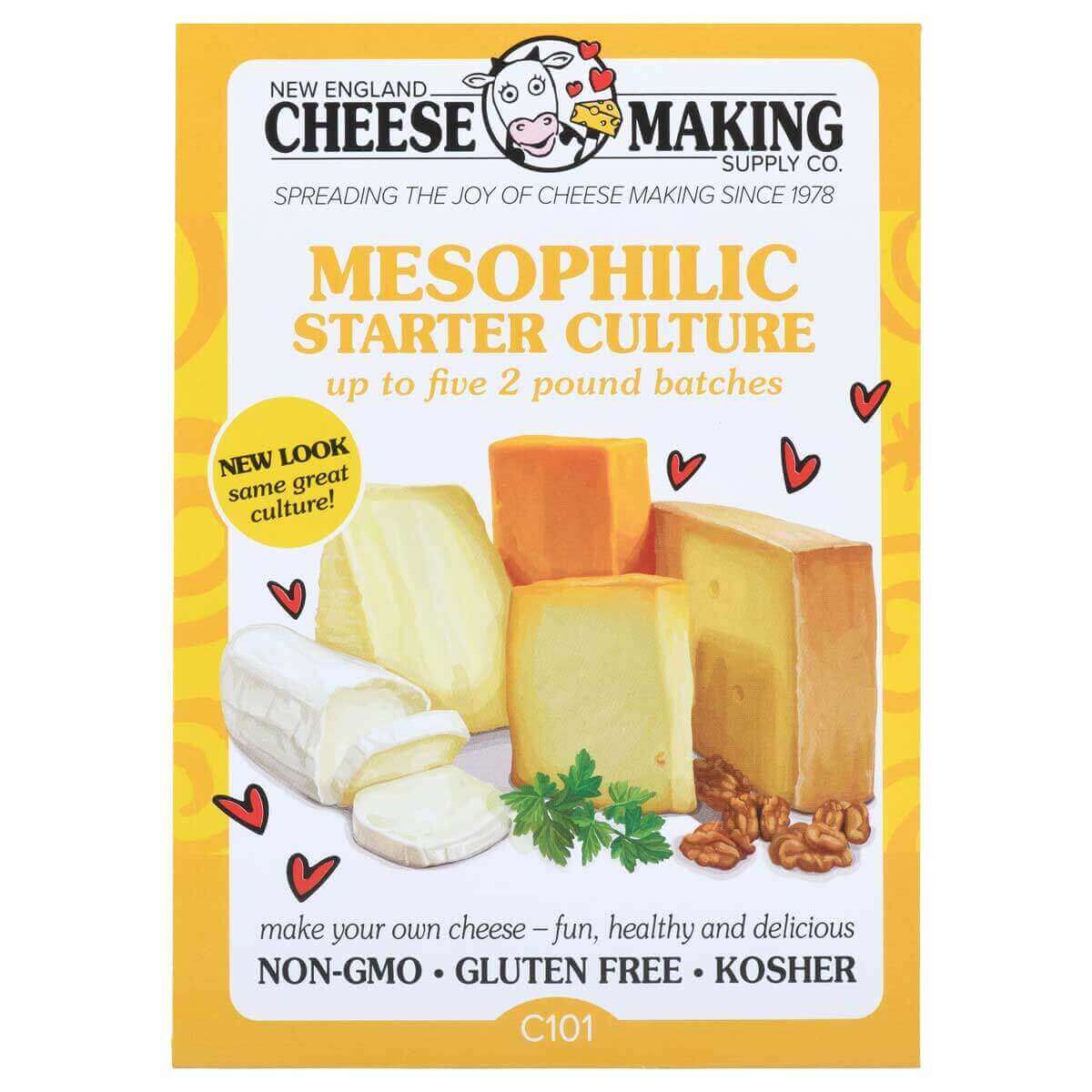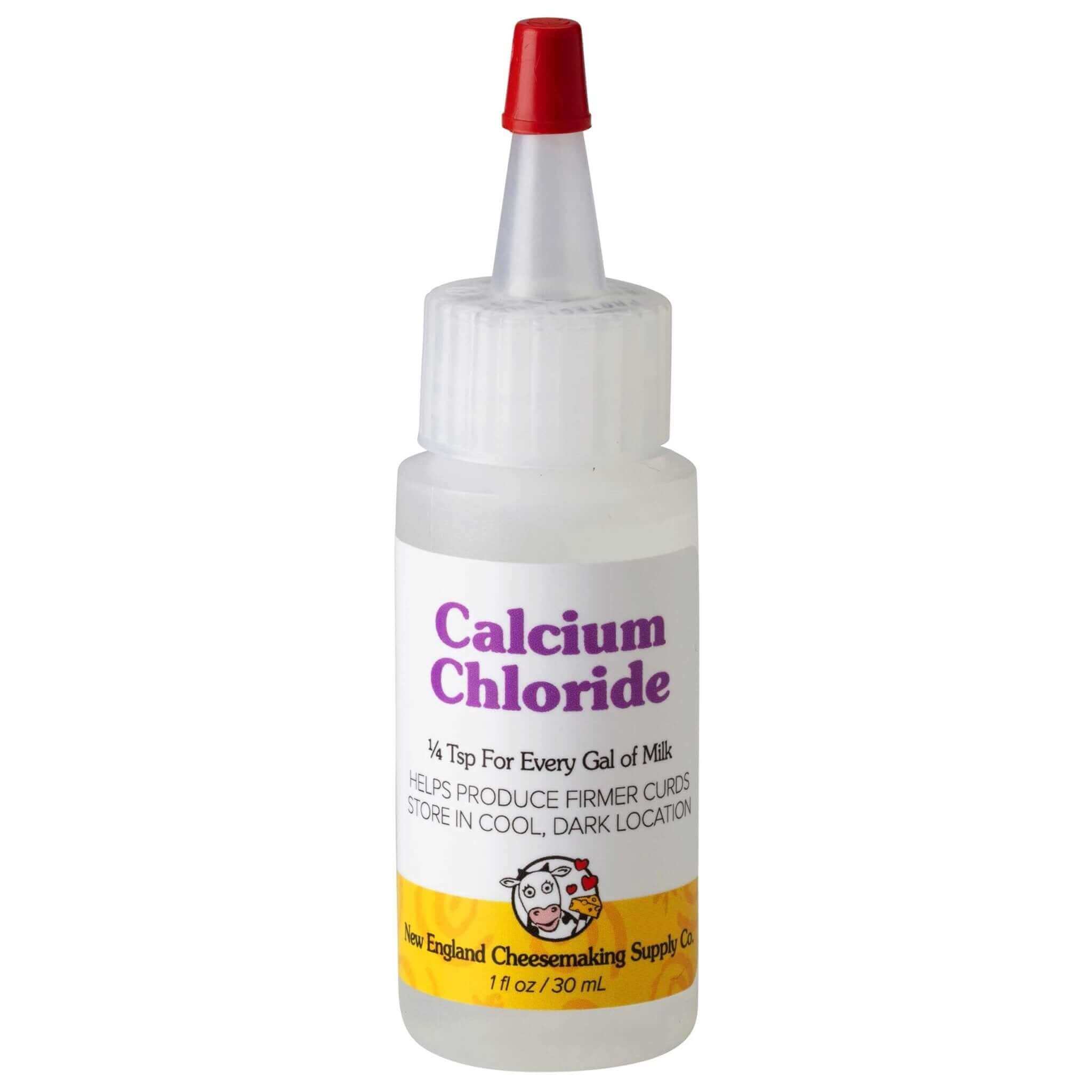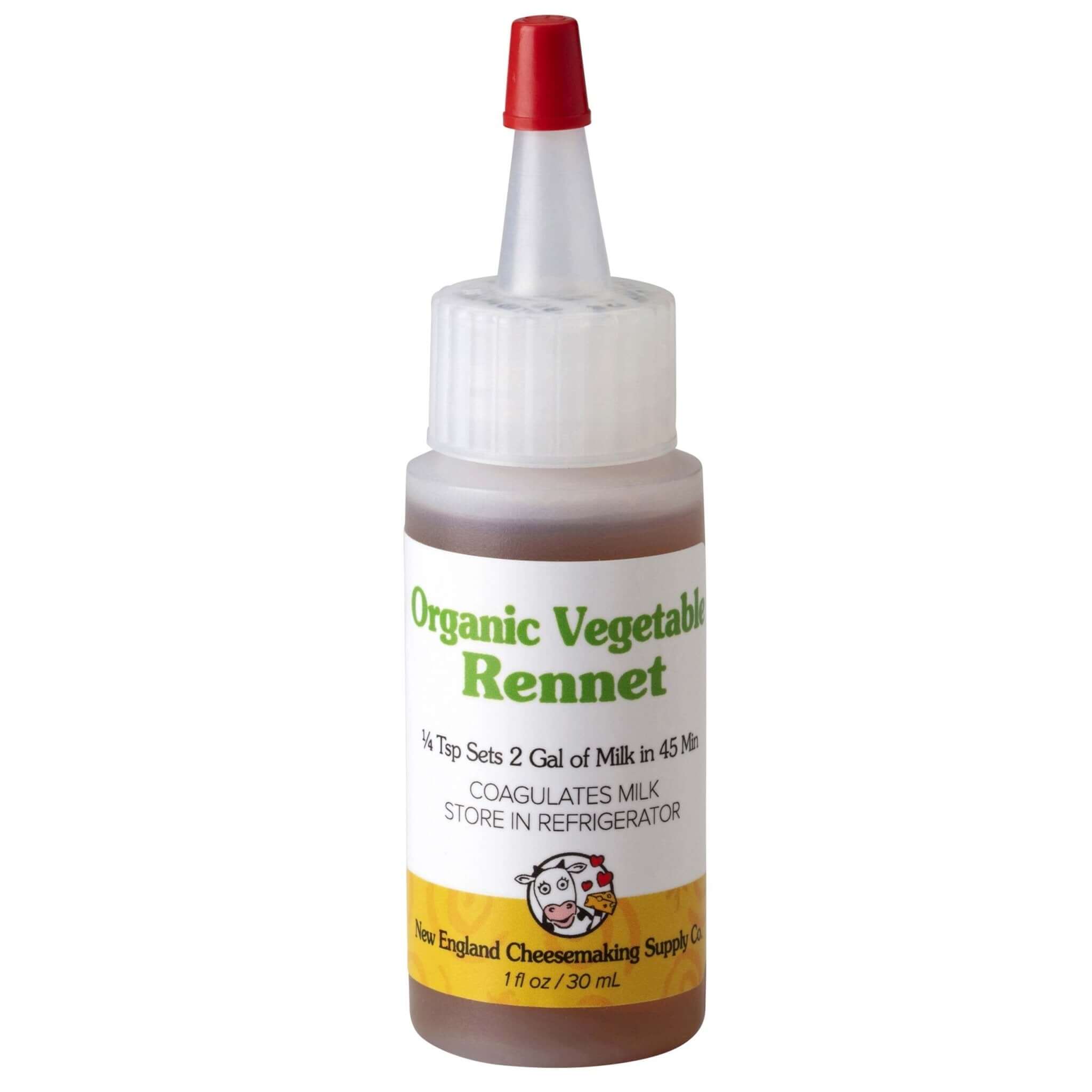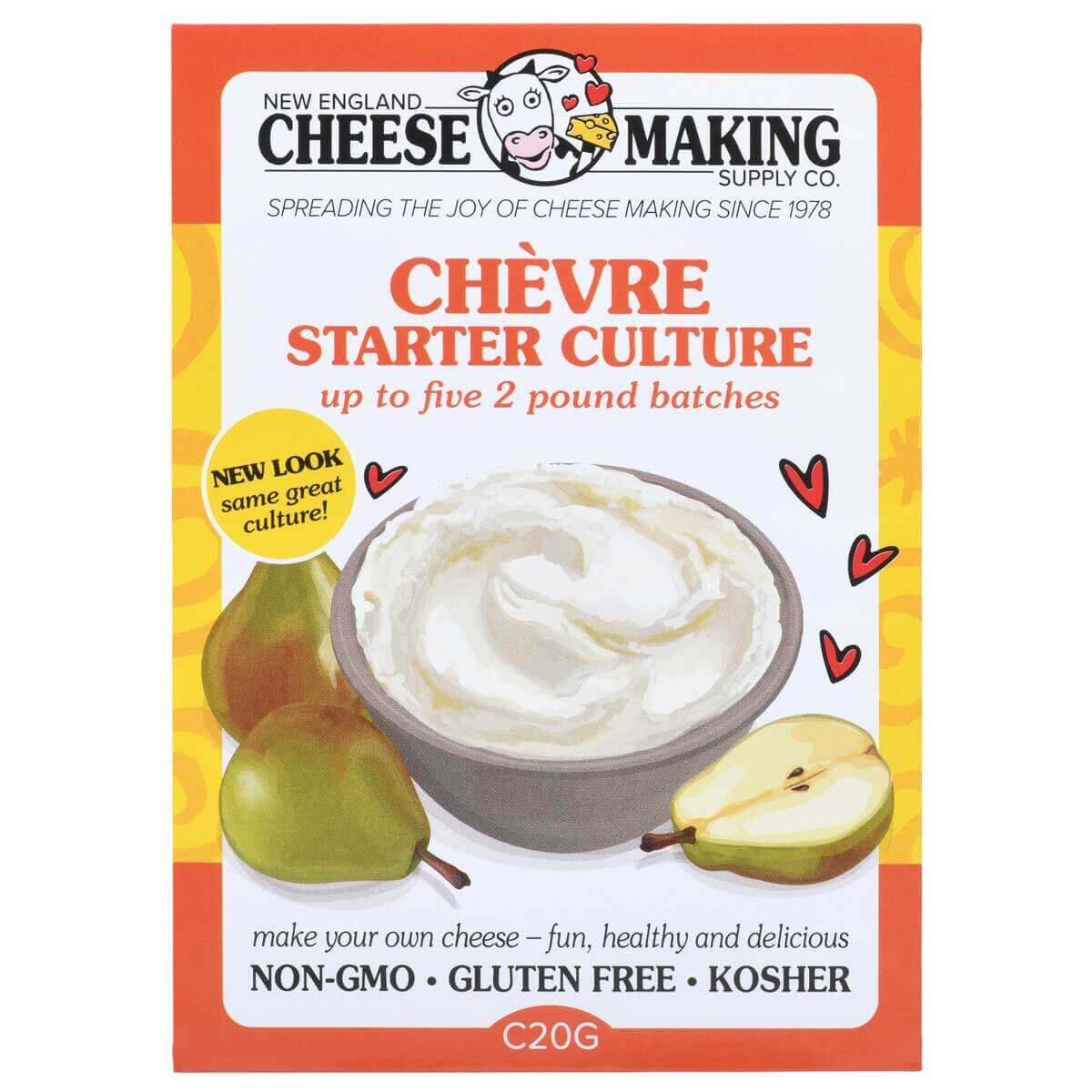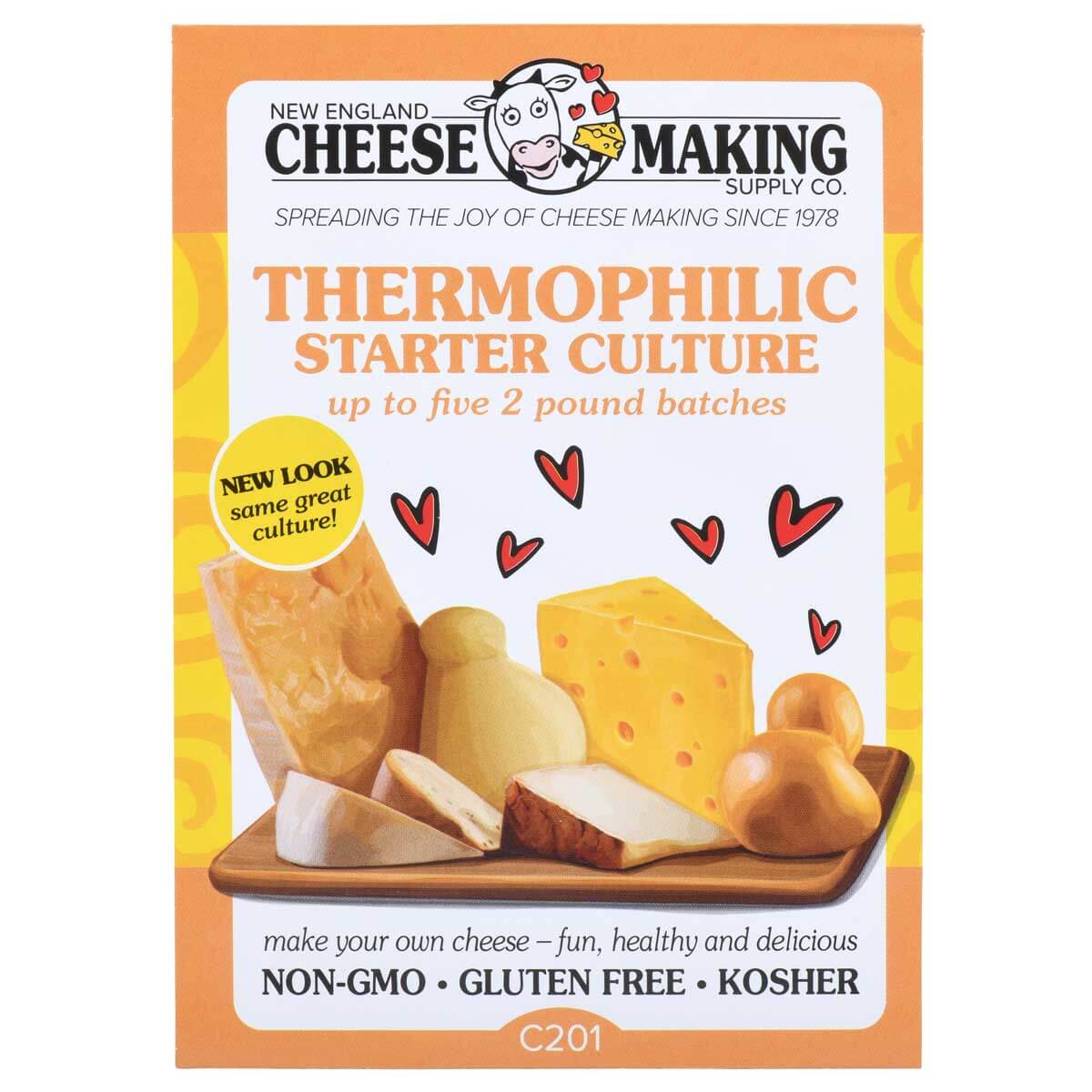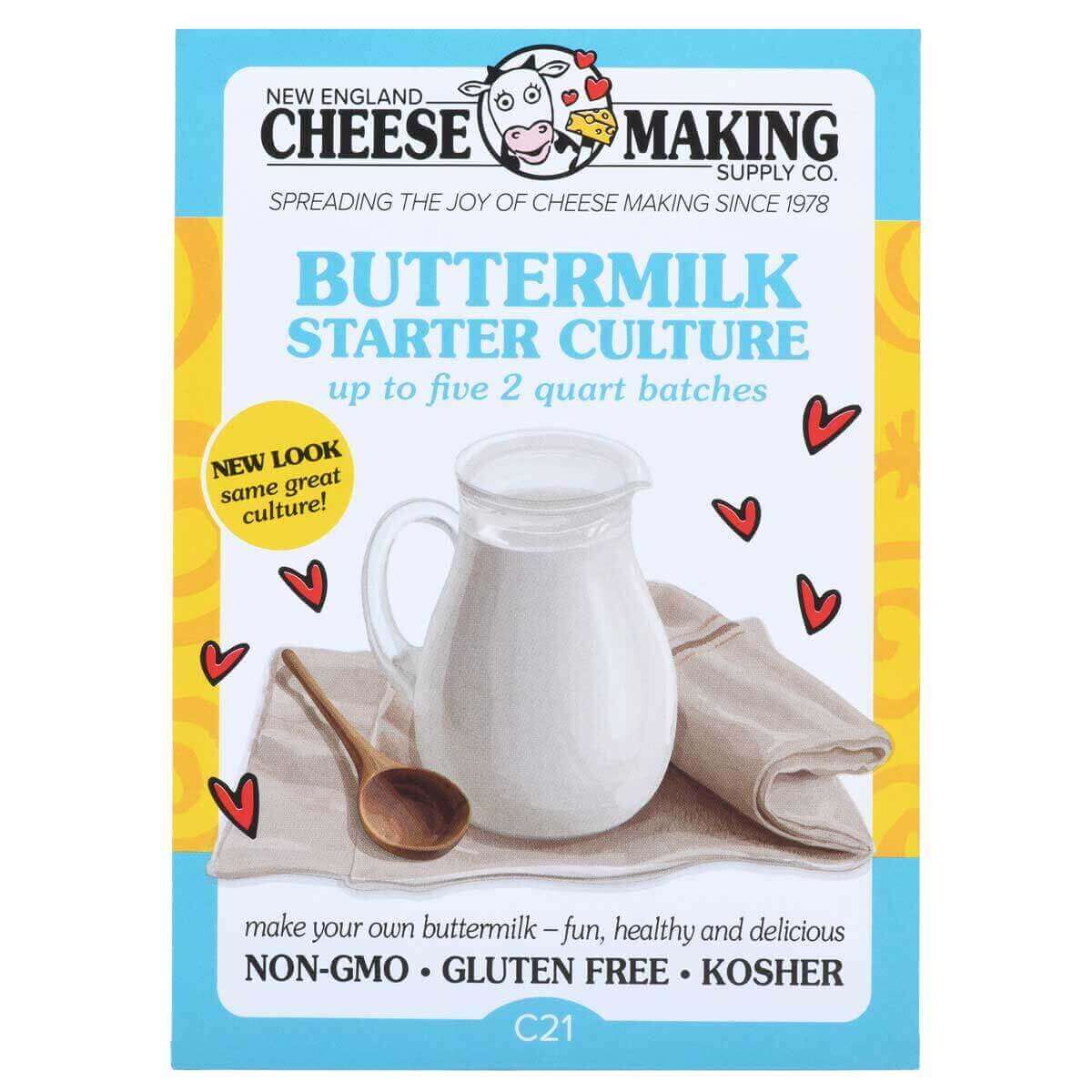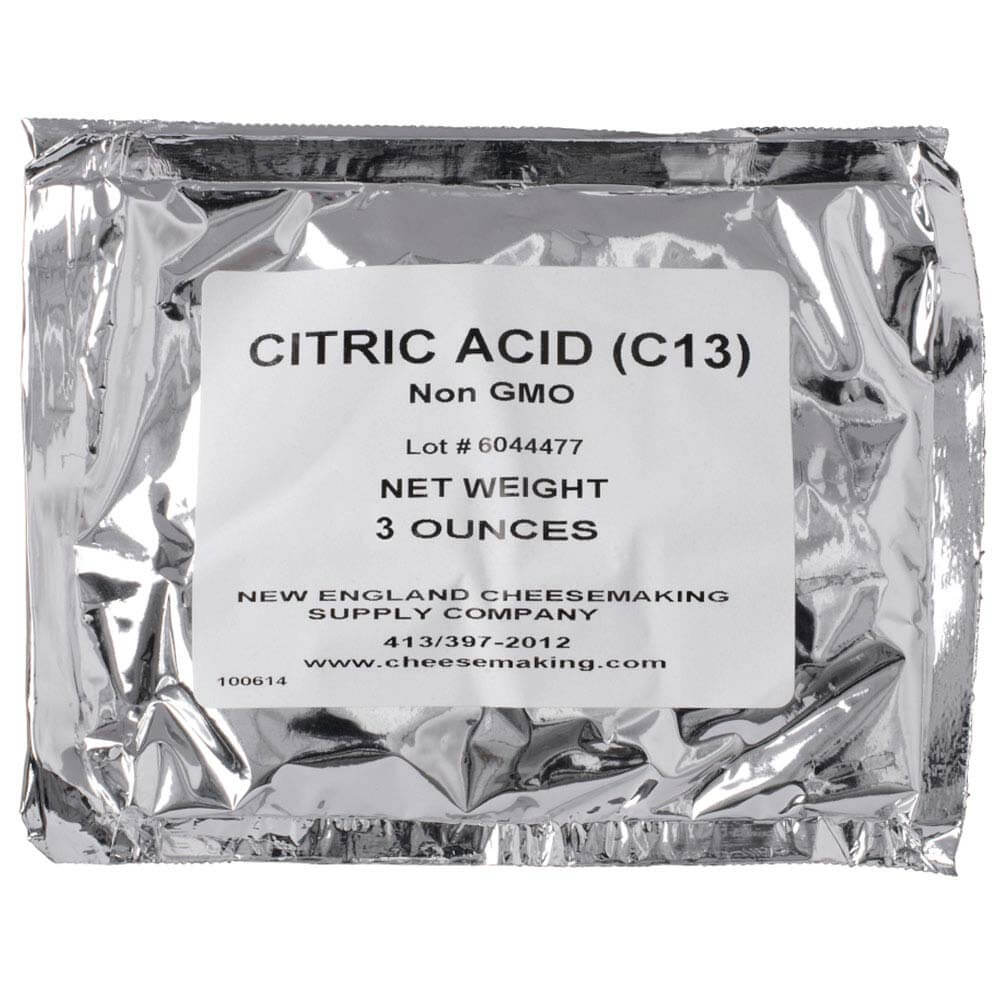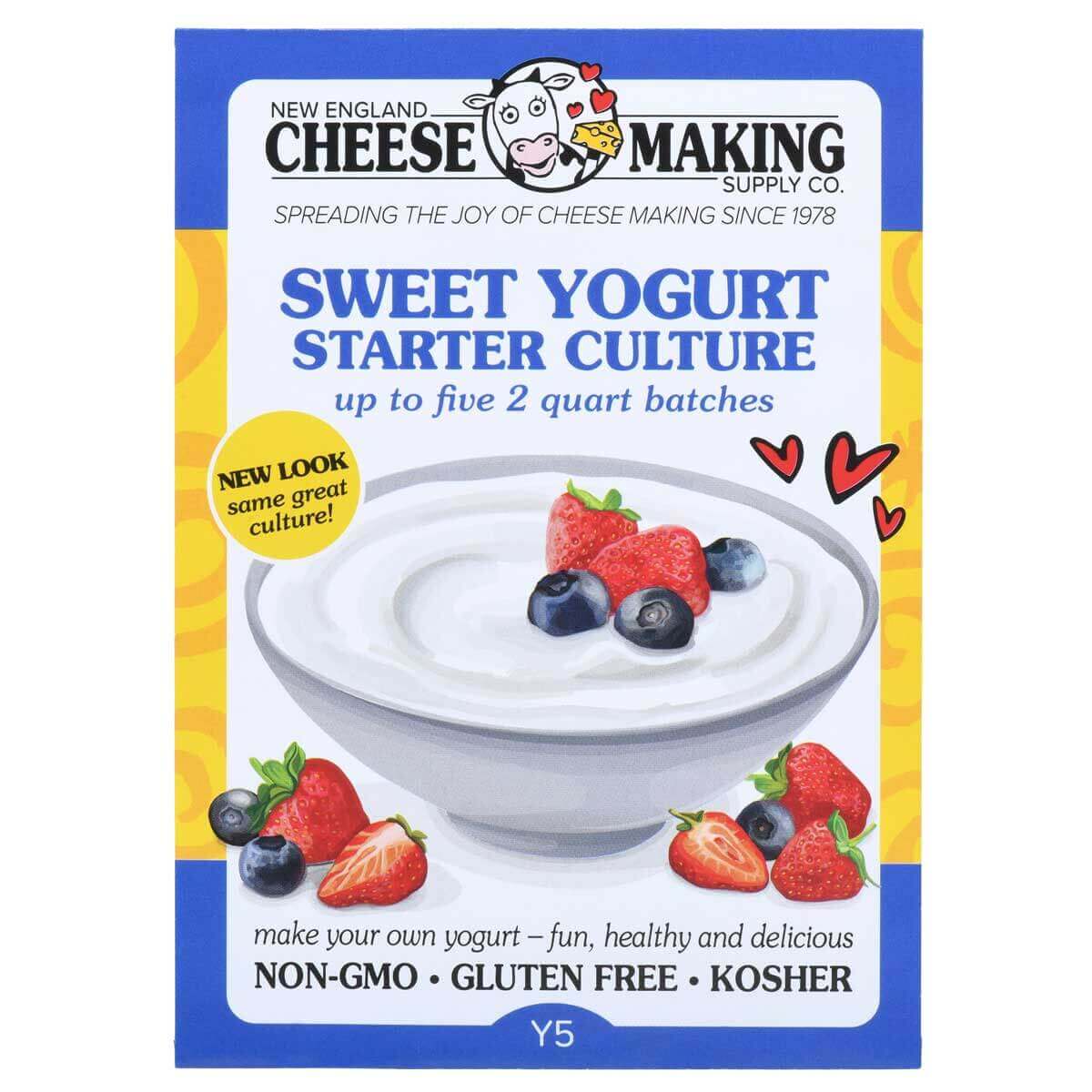
Karen Kushner with some of her cheeses
Red Gable Cheese Workshops is located in Sparta, Tennessee-a small community located on the scenic Upper Cumberland plateau approximately an hour and a half from Nashville, Knoxville and Chattanooga Tennessee. On her 33 acre farm, Karen teaches artisan cheese making utilizing both goat and cow’s milk along with raising a dairy goat herd.
I had to interview Karen by e-mail because Tennessee is a little off my beaten path:

The farm consists of 33 acres on the Cumberland Plateau.

This barn houses the training room and cheese kitchen for her workshops.
Where do you make your cheese?
I started making cheese in my own kitchen and then moved down to the barn. One of my big premises is that each step must be able to be reasonably accomplished in a home kitchen. In the workshops, we talk about sanitation, storing and cleaning equipment and ways to work with what you have in your home kitchen to make it all work. The red barn is where we have what I call the “training room” (where we start the class, take breaks/lunch, etc) and the cheese kitchen itself. The casual training room has a buffet area, dining table, etc.
While my cheese kitchen would most likely pass as a commercial kitchen, I am considered a service since I do not package/sell cheese and that is the way I want it. Remember, my mission is to TEACH people how to make artisan cheese at home. That is part of the reason you see things in my cheese kitchen pictures that are relaxed and “homey.”

Cheese kitchen
How many goats do you have?
We have 8 mixed breed dairy does, two doelings (unbred this year) and two retired does (very large sweet pets now!) We just sold our buck, which I rotate out every two years and will replace this fall.

Karen and Raider


Kids like rocks!
How long have you been teaching classes?
I honed my cheese making craft for three years, did one year of test classes, and opened last year to the public. We cover a lot of ground in our workshops so it was important to me to get the class structure down. I have an extensive background in food & beverage as a Director of Catering with both Hyatt Hotels and Ritz Carlton, so I knew my way around a kitchen, just needed to work specifically with cheese.

Dispersing rennet into the milk
What are your classes like?
There are detailed descriptions of all the different classes at my website – click here. I think one of the things that separates my workshops from others is the variety of cheeses and techniques that you get taught. If you look at the classes, most contain a soft cheese, a bloomy and two different styles of pressed cheeses. Some are cow’s milk, some are goat’s milk but a participant learns a lot of different techniques which hopefully transfer to when they start experimenting on their own. And, my recipes are REALLY detailed and explain thoroughly at all stages what to do and what to look for.
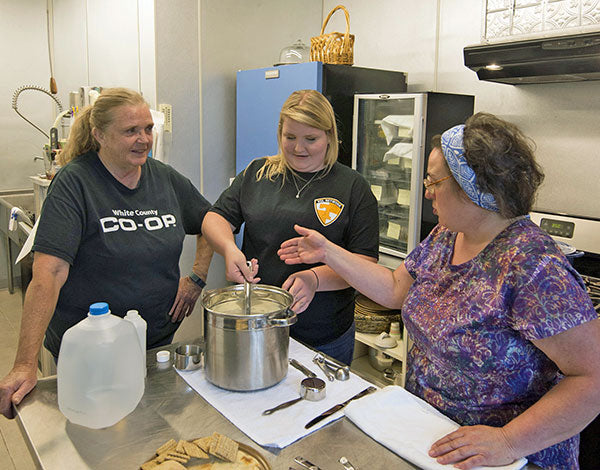

What kinds of cheese are you making?
Goat Milk:
Chevre and Chevre Buttons, Valencay, Mini Maures (a St. Maure knockoff), Crottins, Cabecou, multiple recipes for pressed wheels in the washed curd/washed rind technique. Loaded Goats (bloomy-my own recipe) Bloomy Robiola (mixed milk)

Cabecou – A soft goat cheese button marinated in olive oil, chives, garlic pepper, and pink peppercorns. Karen gives recipes for multiple different marinades in small mason jars which she says are really nice as a gift. As an added bonus, the olive oil marinade can be used for salad dressings when you are done with the cheese.

Chevre with Tarragon & Pink Peppercorns, Coeur de Beurre, and a Loaded Goat
Cow’s Milk:
Feta, Fromage Blanc, my version of Double Cream Camembert, Coeur De Beurres (bloomy rind), and multiple recipes for pressed wheels in the washed curd/washed rind technique. I used to teach mozzarella but stopped because I found that to make a $5 ball of mozzarella, you had to buy $7 worth of milk.

Coeur de Beurres

Feta

Salad with Feta

Flavoring Fromage Blanc with sriracha
Can you tell that I like the bloomy’s? They are a great value for the amount of milk you need for them and once you get the hang of it, they are relatively easy to make.
You use some of your own recipes?
I use basic foundations for building upon and personalizing recipes but as any cheese makers knows, even slight changes to cultures, rennet, temperature and techniques including how you handle the cheese at every step of it’s development determine what that cheese will be. It’s what I find fascinating about developing my own recipes. But, I always make sure that my recipes can be replicated in a home kitchen with basic cheese making equipment. And my equipment lists provided are highly detailed. There is nothing more frustrating than to be told to sanitize all your equipment and then finding out that you need three pieces of equipment half way through a recipe or that the recipe calls for equipment you didn’t know you needed and therefore don’t have. Been there, done that!

A beautiful curd
Last year, I developed two bloomy rinds. The first was a “Loaded Goat” a yummy bloomy rind with mild curry & black ash running through the middle. It was in response to my husband wanting a spicier bloomy. FYI, the name comes from an old Andy Griffith show called “The Loaded Goat” where a goat that has eaten dynamite gets loose in Mayberry and ends up in the jail cell with the town drunk, Otis. One of my favorites!
The second was my take on a cow’s milk double cream Camembert with black ash that I make in Crottin forms, so, smaller than the hockey puck sized traditional Camembert. I call them “Baby Bears” (get the phonetic word play?). They were in response to us wanting a small piece of cheese that was just the right size for two as a light appetizer before dinner.
First up this year is to settle a goat milk recipe pressed into small rustic balls and then marinated in beer. These will be called “Goat Boules”- French for balls, which for obvious reasons sounds better. I’ll then do a similar recipe with cow’s milk but haven’t mapped that all the way through. They will probably be marinated in a flavored vodka. All of these cheeses will be taught sooner or later in the workshops.

From front: wedge of Harvest Moon-a pressed wheel with autumn flavors, Cabecou, large Chevre Button with Tarragon & Pink Peppercorns, Valencays, wedge of Julie’s Cheese with coffee/amaretto, a wedge of Dark Side of the Moon-the counterpoint to Harvest Moon with ash, lemon, basil, peppercorns and a Crottin.
What kind of “cave” are you using?
Because I want people to be able to actually replicate the recipes, all my recipes are “cave” tested for aging in a beverage/wine refrigerator that can maintain 50-55F degrees and we talk about how to maintain reasonable humidity levels in the refrigerators – particularly important with the bloomy’s.

Young Crottins aging
After milking the goats and pasteurizing the milk, my second favorite part of the morning is taking care of my “cheese children” in the cheese refrigerator. At each stage, cheese needs something a little different to age properly and my quiet time coaching the cheese to their maturity gives me perspective on what to teach in the workshops. Aging cheese properly in a home environment can be tricky and learning the skill of what to look for is important.

A pressed wheel of goat milk cheese, washed curd and washed rind. This one has dill, lemon & pink peppercorns. Lemon is in the cheese and the wheel, as it ages, is also washed with lemon vodka.
My cheese fridge is a wine cooler that we’ve had forever. Sorta attached to the old gal! When we started thinking about this venture, we did two trips. First, to the Vermont Cheese Trail. We stopped at Blue Ledge and at the time, their cave was relatively new. They had just sprayed it with French molds and everything was pristine. They were very gracious and we had a fun morning with them. What reminds me of that morning as I was getting my cheese fridge picture for you is that over in the corner of this pristine cave was their old home refrigerator that they used when beginning their cheese adventure. I think for them it was a reminder how far they had come and that they too were attached to their old gal…..

Cheese cave – wine cooler
Our second trip was to France. We ate more cheese in two weeks than a human should consume in a year! From simple to stinky to blue to down right “what the heck is this?” we tried it all. It was a great trip because it re-enforced our idea about the almost infinite possibilities and varieties of cheese.

The cheese stalls at LesHalles in Lyon
Do you sell your cheese?
We do not sell our cheese. Like neighbors who have chickens and therefore usually overflow with eggs, our friends know the sign of an overflowing cheese frig and reap the benefits.
How do you and your husband divide up the responsibilities on the farm?
I married the nicest man this side of the Mississippi! He works and helps when he can (we just got up from evening chores at the barn). The day-to-day running of the farm and workshops are my gig. Once we’re in season, I will milk, take care of the goats/kids, make cheese and prep for the classes. It’s a full day 24/7. Right now, we’re in winter mode which is a lot less intensive. Once I fire the cheese kitchen back up in late March, which coincides with milking and kidding season, it’s back to the longer day schedule.

Even though it’s a lot, right now I can tell you that in the dead of winter, I find myself longing for spring grass, babies, cheese and workshops.

Red Gable Cheese Workshops
Karen Kushner
306 Tandy Lane
Sparta, Tennessee 38583
Call 8am-6pm CST:
931-946-7688 (no text please)
info@redgablecheese.com
*2018 Class Schedule (detailed class descriptions available at www.redgablecheese.com)
May 12, 2018 Full Day Starting at 9am
Moooo-Exploring Cow’s Milk Cheese-Feta, Fromage
Blanc, Double Cream Camembert & Coeur de Beurre
May 26 (1pm-5pm) May 27 (9am-12pm)
My Passion & Your Passion-Chevre or Fromage Blanc, Cabecou,
Feta & a Bloomy Rind
June 9, 2018 9am-4pm
Mix It Up! A Celebration of Goat & Cow Milk Cheese
Cow’s Milk Feta & Fromage Blanc, Goat Milk Bloomy Rind & Wheel
of Pressed Cheese
June 16, 2018 9am-4pm
Informatively Fun & Wickedly Amusing Artisan Cheese and Craft
Beer Primer! A Bloomy Rind, Feta and Chevre OR Fromage Blanc
followed by brewery tour and cheese tasting at Calfkiller Brewing Co.
June 30, 2018 9am-4pm
Mix It Up! A Celebration of Goat & Cow Milk Cheese
Cow’s Milk Feta & Fromage Blanc, Goat Milk Bloomy Rind & Wheel
of Pressed Cheese
July 14, 2018 9am-4pm
All Things Goat! A Bloomy Rind, Cabecou, Pressed Wheel of Cheese
and the Classic Chevre
August 18, 2018 9am-4pm
Mix It Up! A Celebration of Goat & Cow Milk Cheese
Cow’s Milk Feta & Fromage Blanc, Goat Milk Bloomy Rind & Wheel
of Pressed Cheese
September 1 (1pm-5pm) September 2 (9am-12pm)
My Passion & Your Passion-Chevre or Fromage Blanc, Cabecou,
Feta & a Bloomy Rind
September 15, 2018 9am-4pm
Mix It Up! A Celebration of Goat & Cow Milk Cheese
Cow’s Milk Feta & Fromage Blanc, Goat Milk Bloomy Rind & Wheel
of Pressed Cheese
September 29, 2018 9am-4pm
The Goodie Basket! Goat Milk Cabecou & Valencay, Cow’s Milk
Coeur de Beurres & Fromage Blanc
October 13, 2018 9am–4pm
The Goodie Basket! All Cow’s Milk-Feta, Fromage Blanc,
Coeur de Beurres & Double Cream Camembert
October 27, 2018 9am-4pm
The Goodie Basket! All Cow’s Milk-Feta, Fromage Blanc,
Coeur de Beurres & Double Cream Camembert



